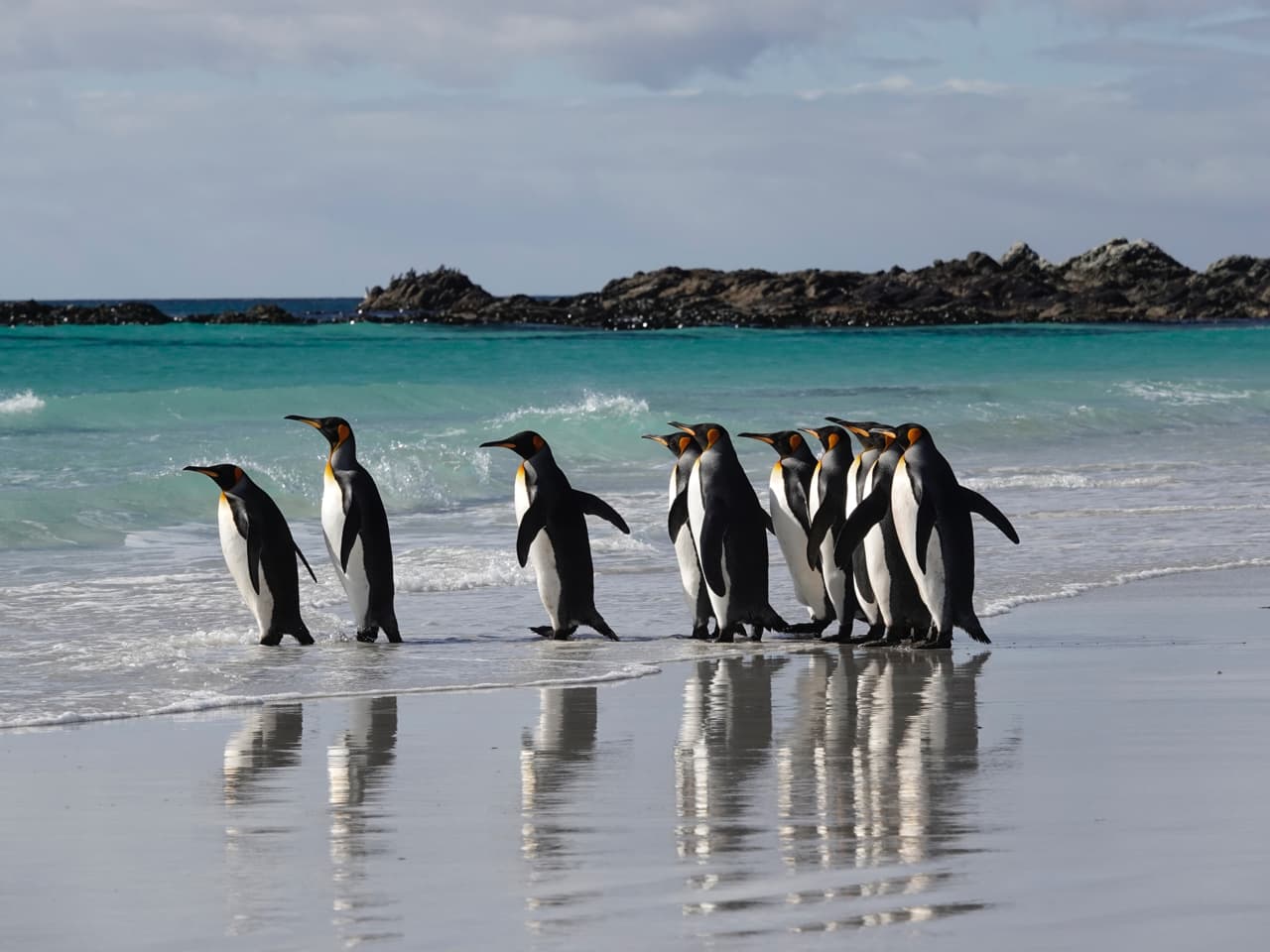A paradise for penguin fans
Five different species of penguins live in the Falklands: Magellanic penguins, gentoo penguins, rockhopper penguins, macaroni penguins and king penguins. We were lucky enough to encounter and observe four of them.
Not far from Stanley, after a picturesque walk along the beach, you reach a colony of gentoo penguins near Yorke Bay Pond.
And we had an extra dose of luck: individual king penguins rarely stray onto this beach.
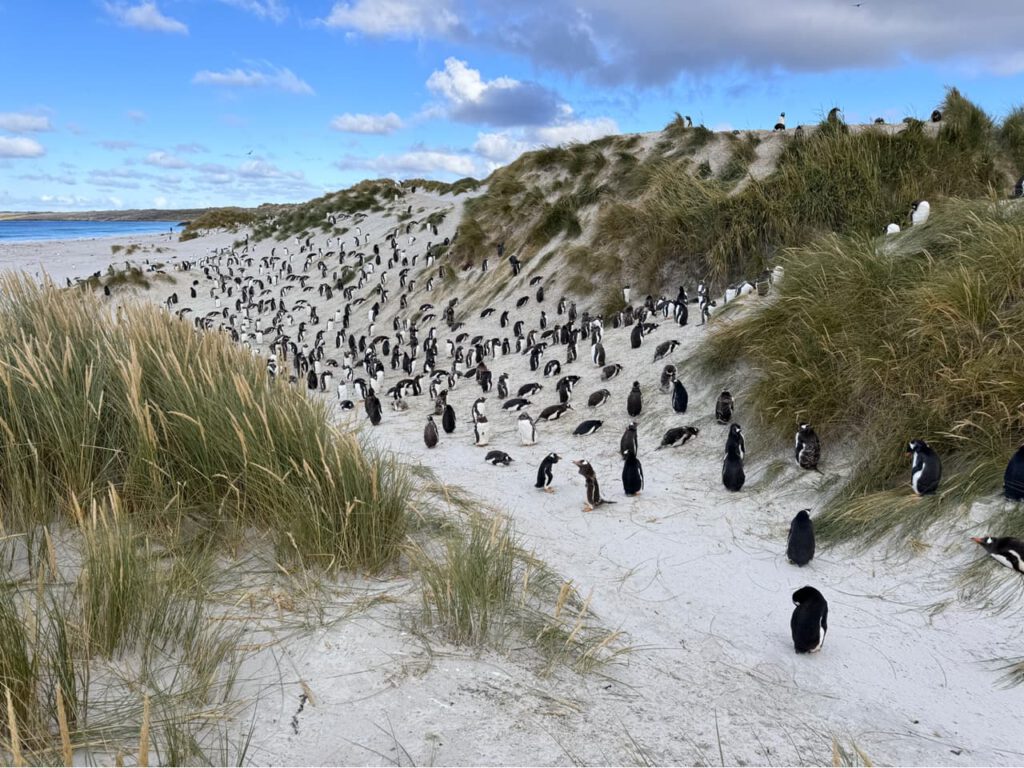
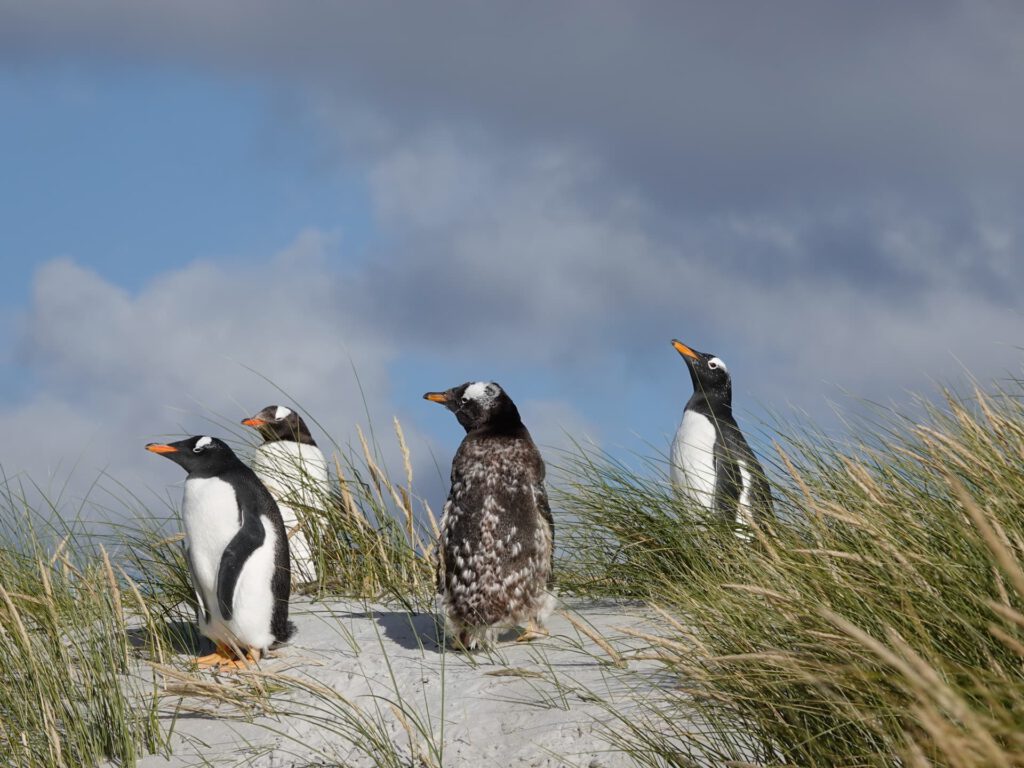
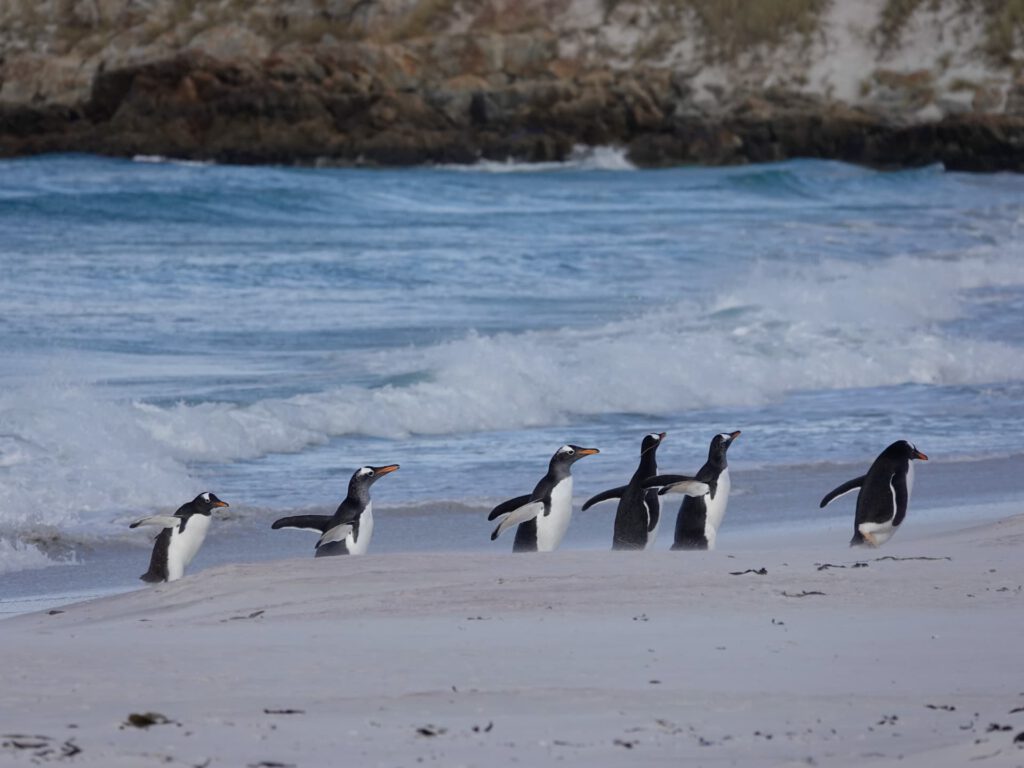
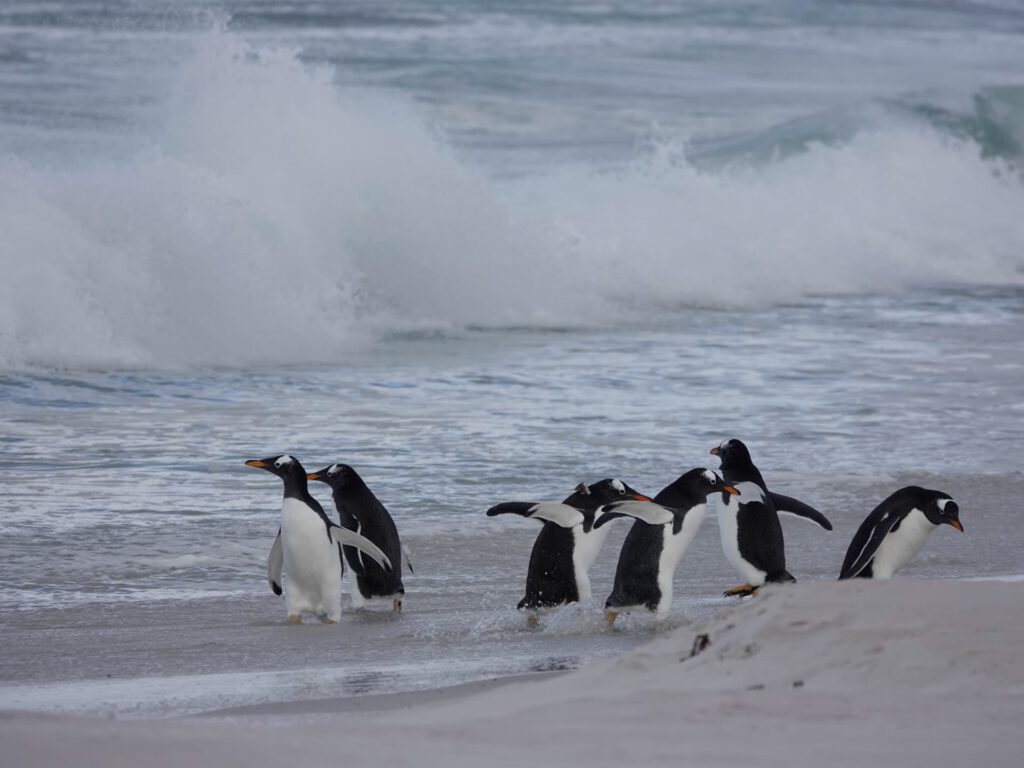
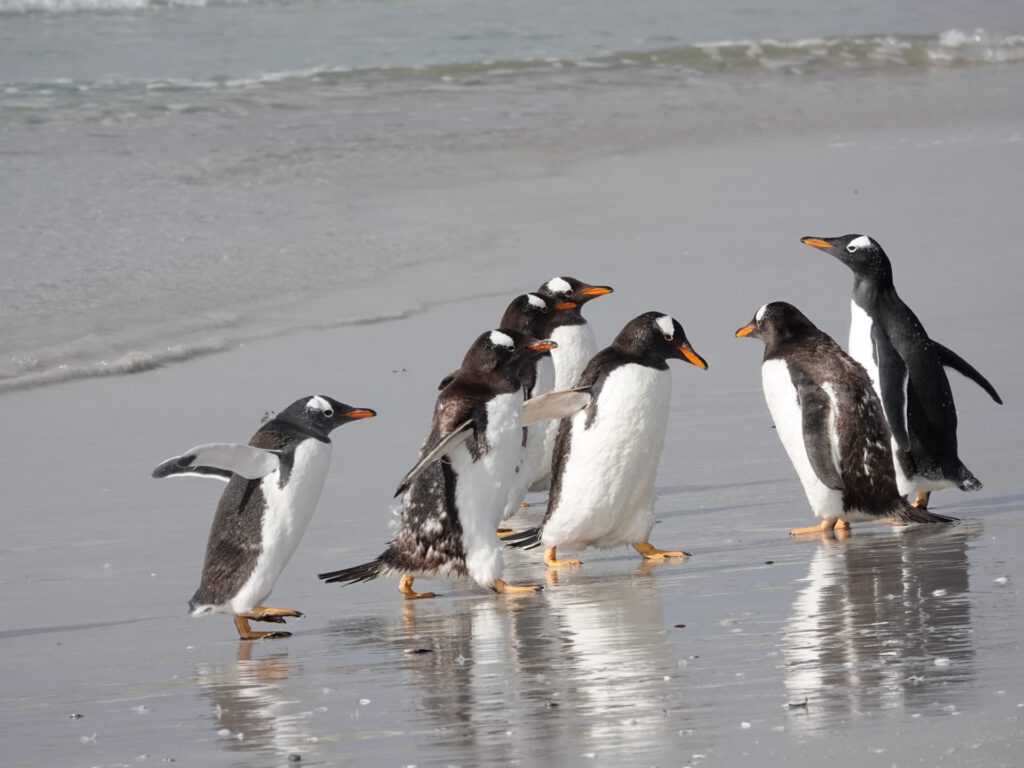
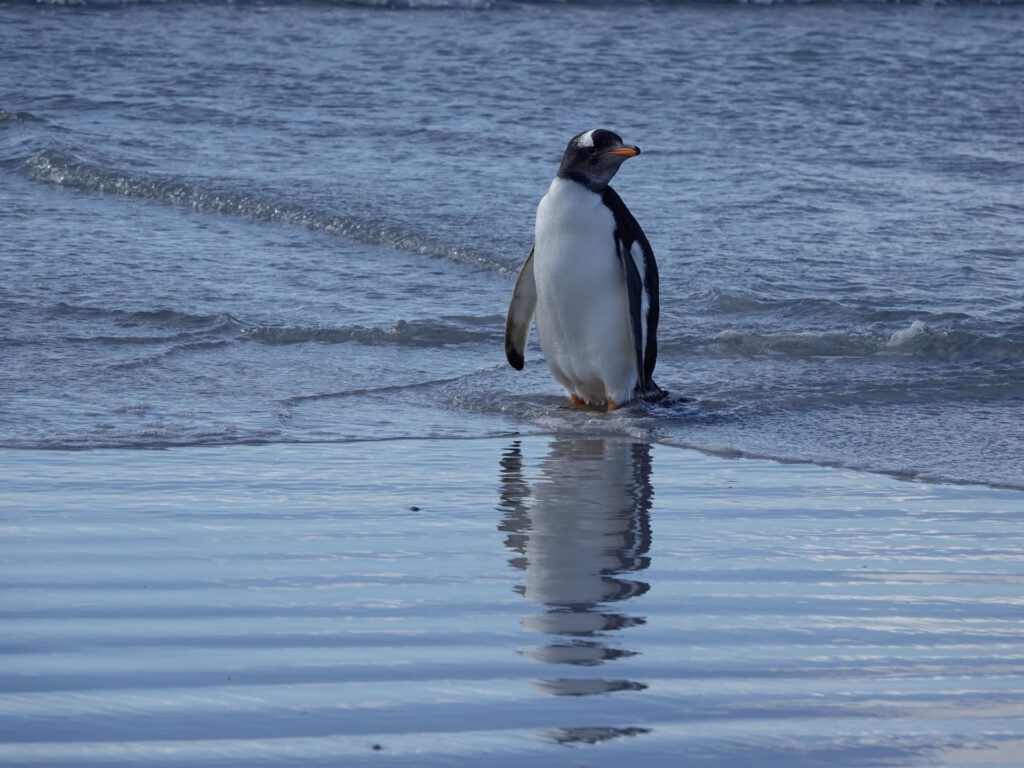
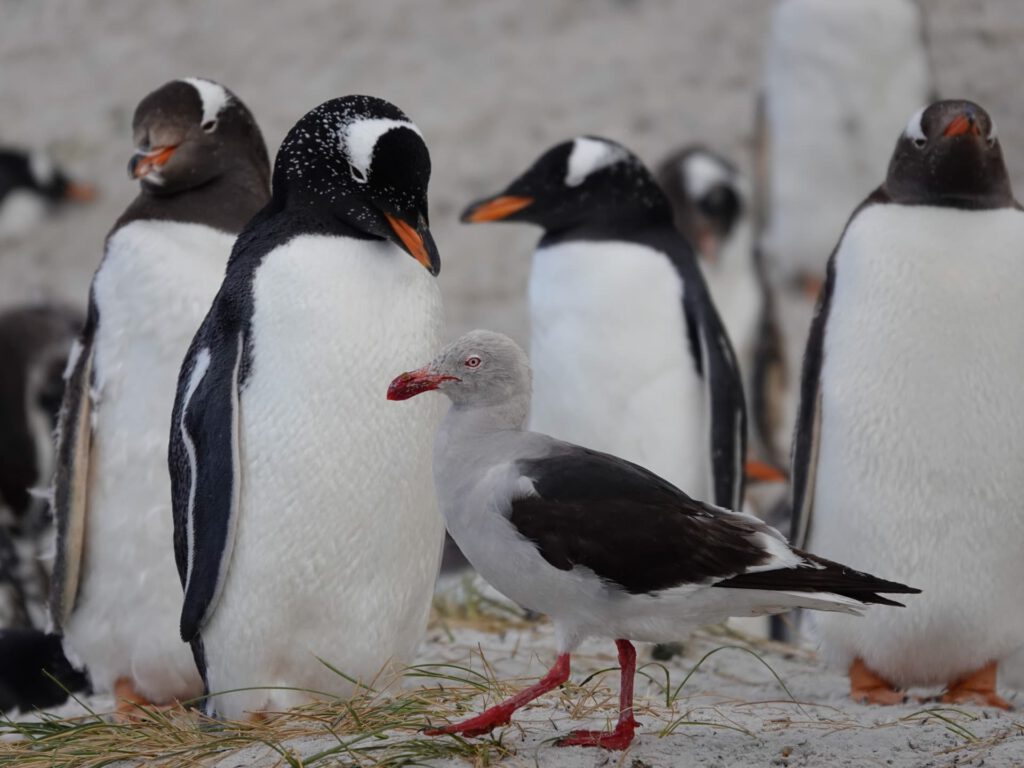
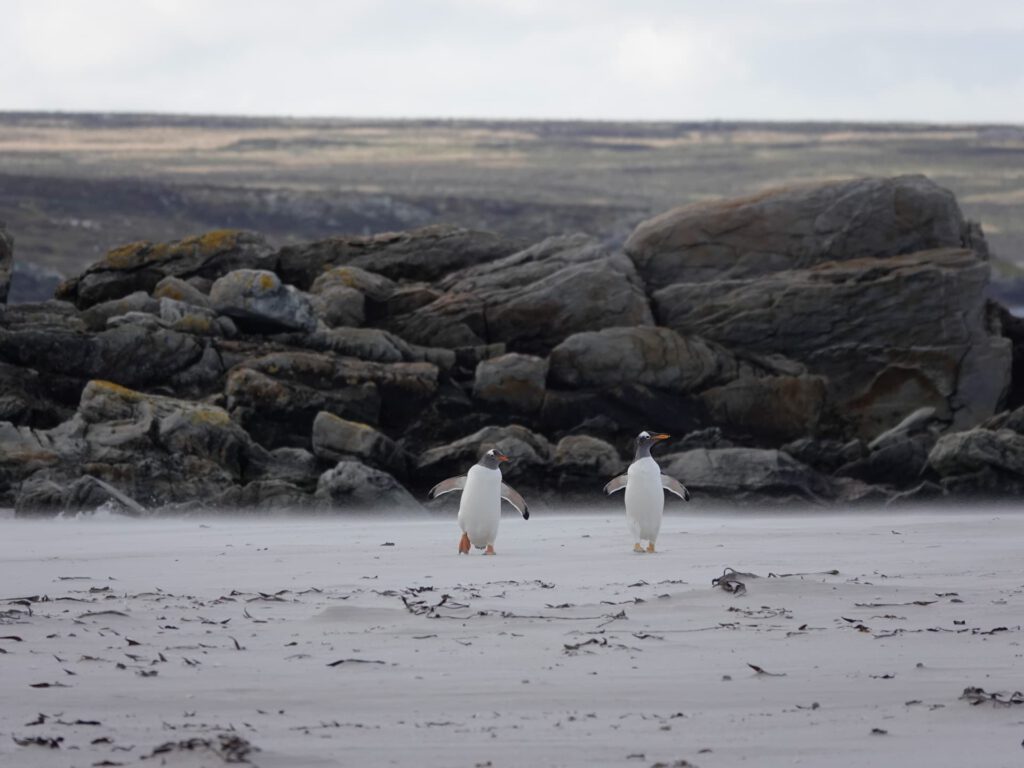
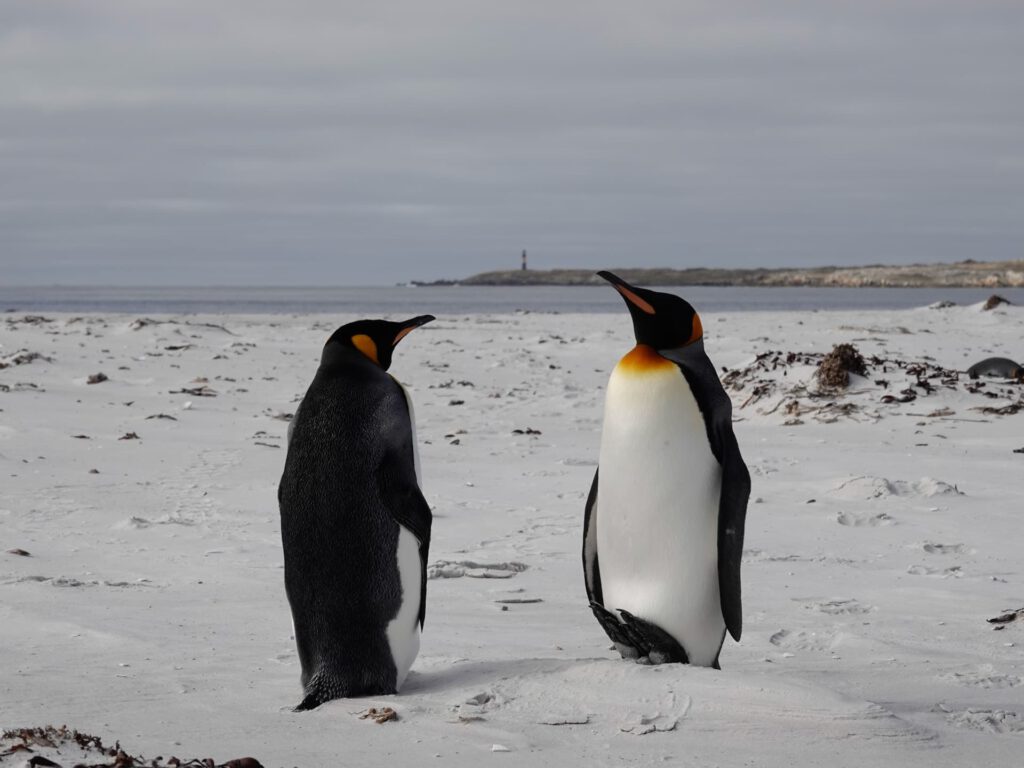
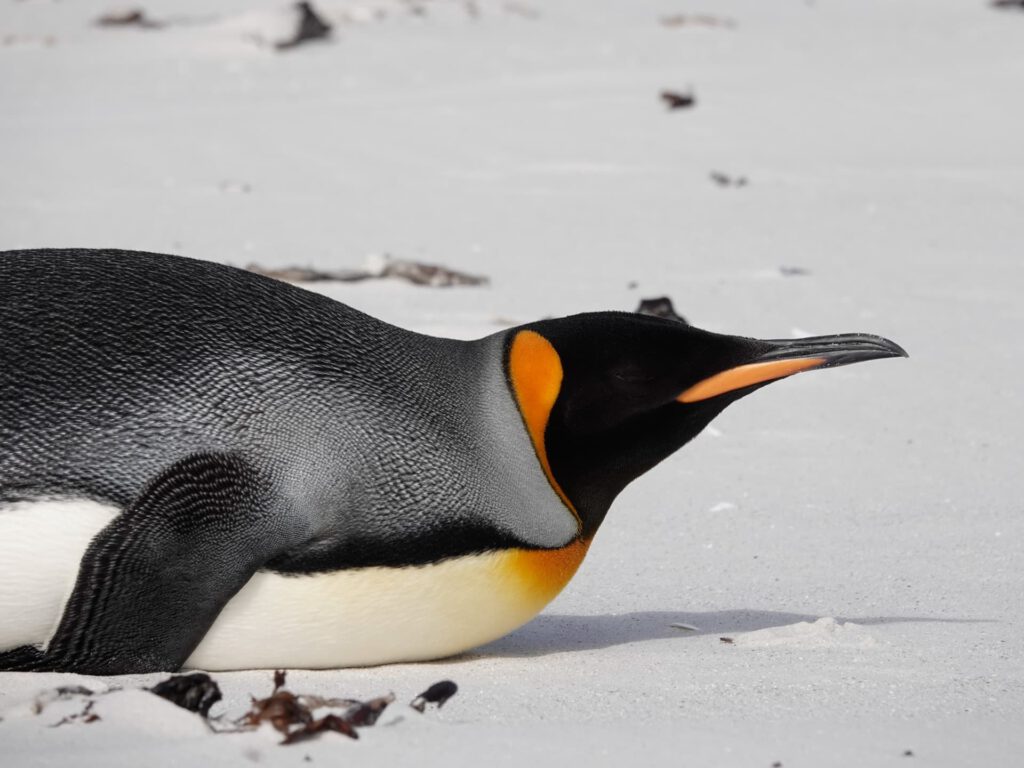
Magellanic penguins nest in their burrows at Gypsy Cove, but also on numerous other stretches of coastline around Stanley.
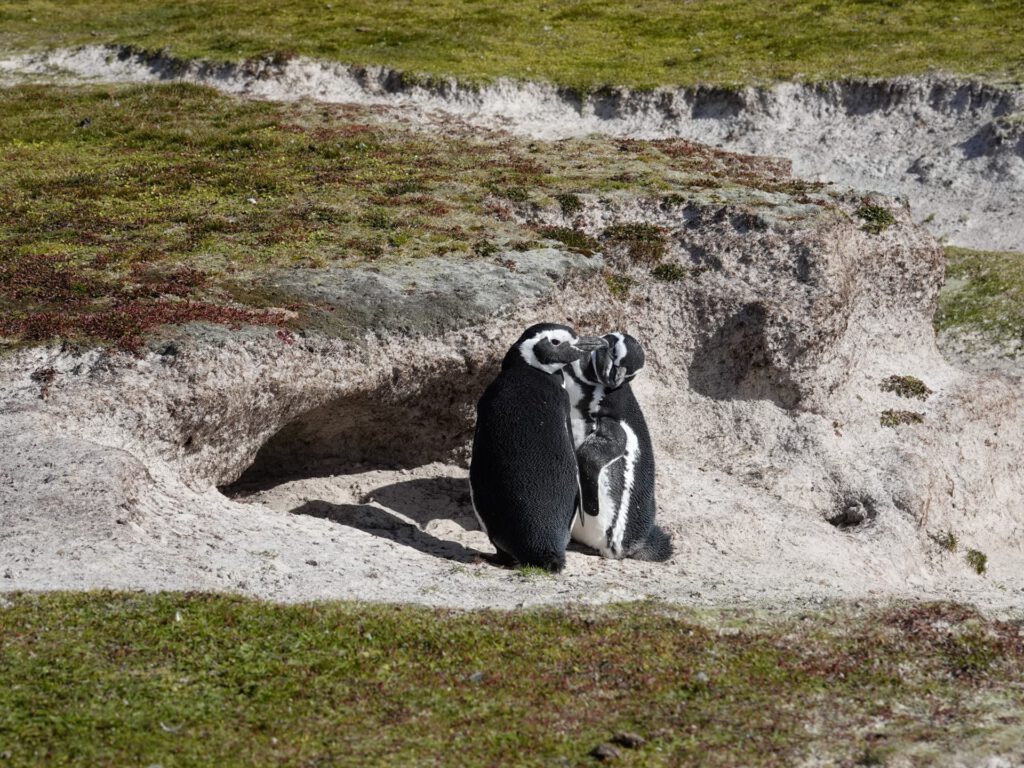
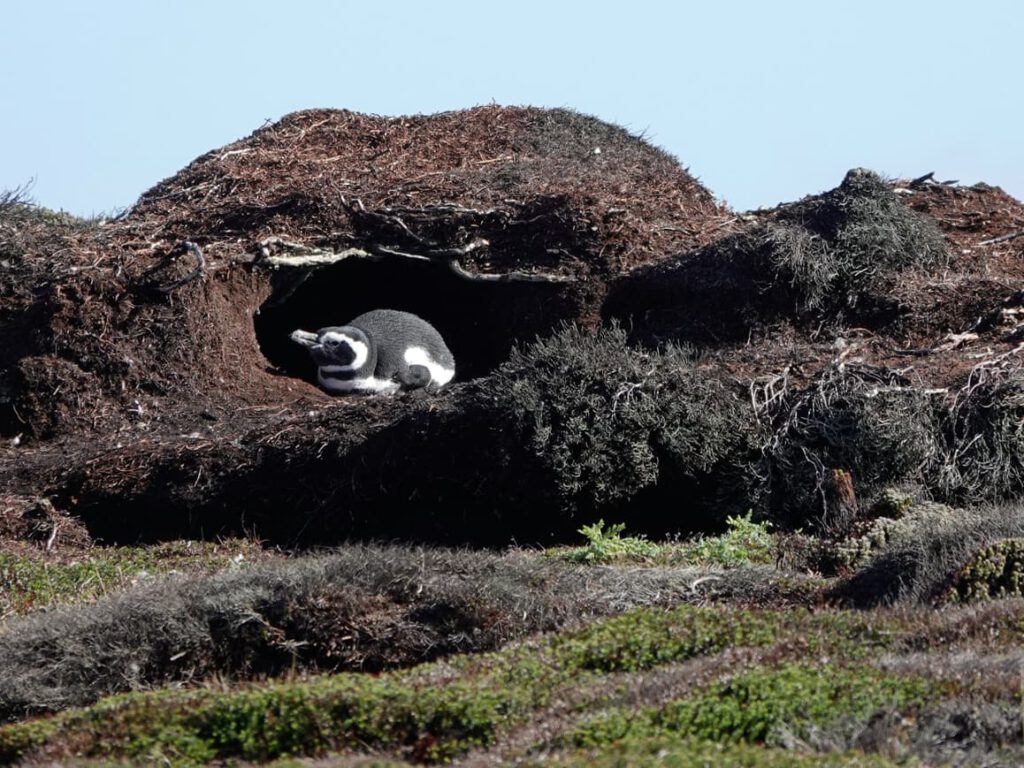
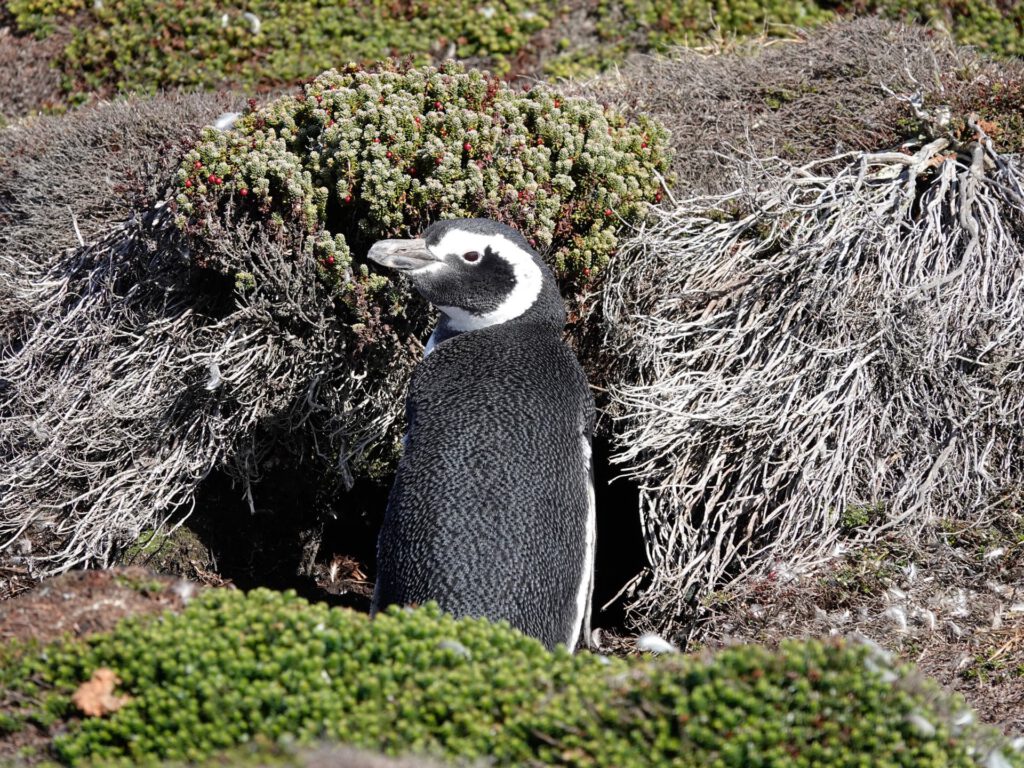
The route to two other representatives is somewhat further and more arduous.
On Murrell Farm to the punks among the penguins
Two colonies of rockhopper penguins can be found on the coast of Berkeley Sound on the grounds of Murrell Farm.
Adrian and his son, who run the farm together with around 3,000 sheep, took us on a wild off-road drive through the vast countryside to show us the penguins, who love to climb and jump. We were lucky enough to see them. High up on the rocky cliffs, almost without exception all the animals were in the middle of their moult and looked pretty battered and dishevelled. All punks on a bad hair day …
The lush greenery above the coast and between the rocks was speckled white with feather fluff. A good week later, in their new plumage, the entire colony will leave and only return here after the winter.
The English name rockhopper is a pretty apt name. The rather small penguins with the red eyes and yellow eyebrows move almost exclusively by hopping from rock to rock through the wildly rugged cliffs, which sometimes looks more, sometimes less elegant, but always very funny.
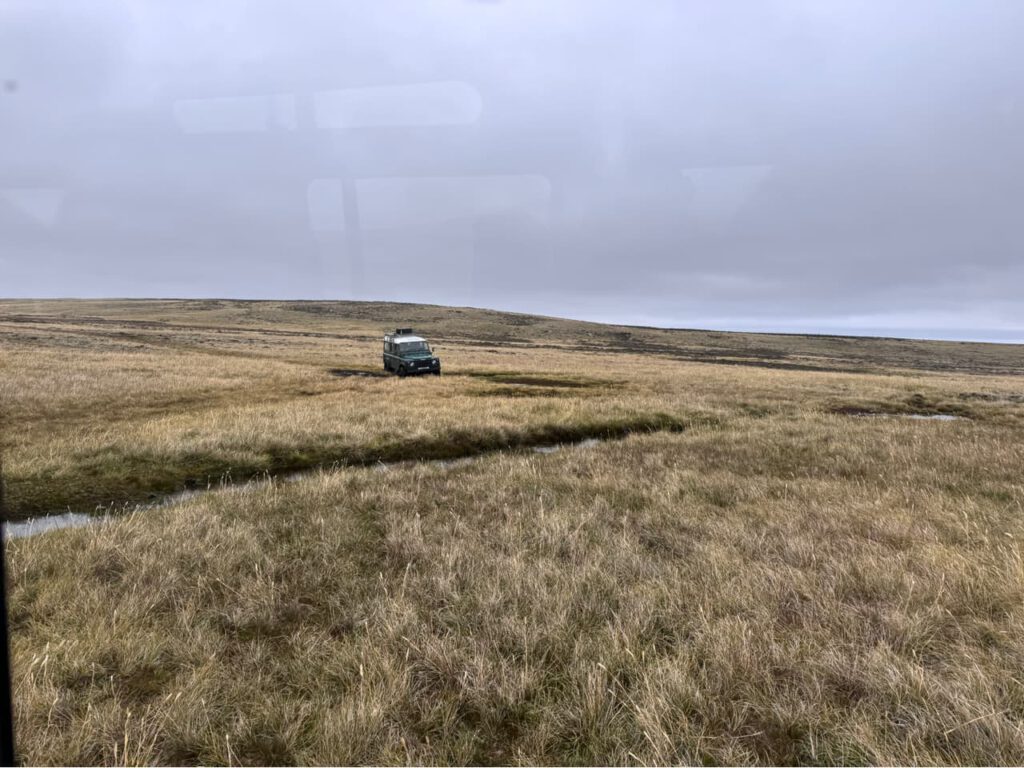
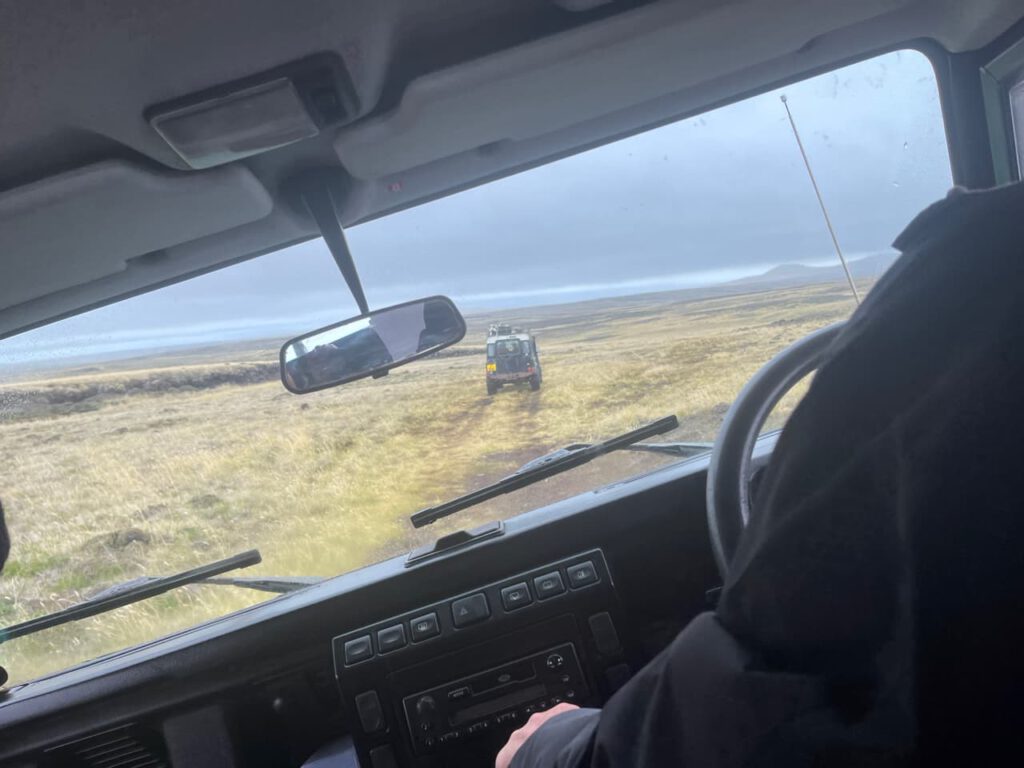
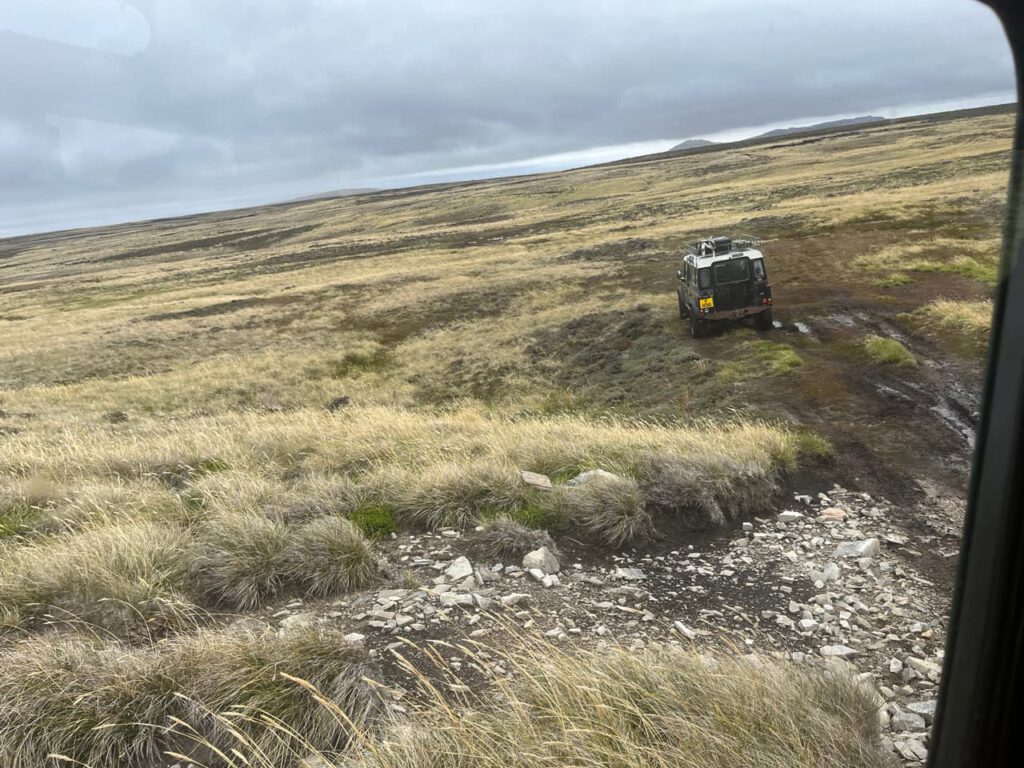
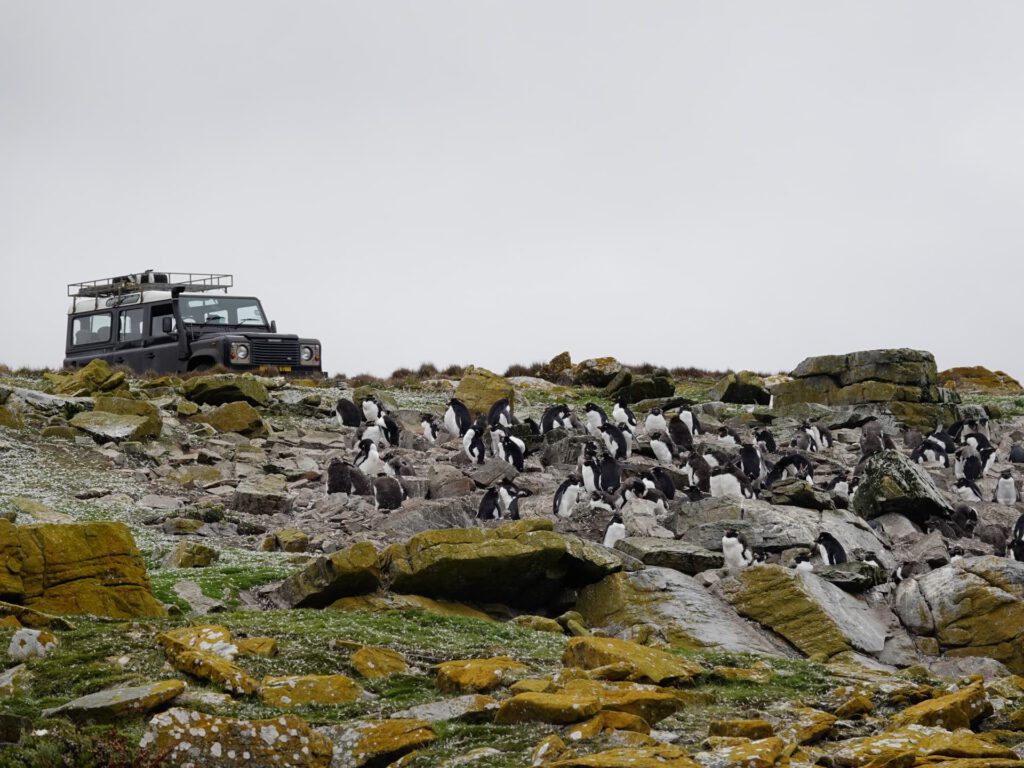
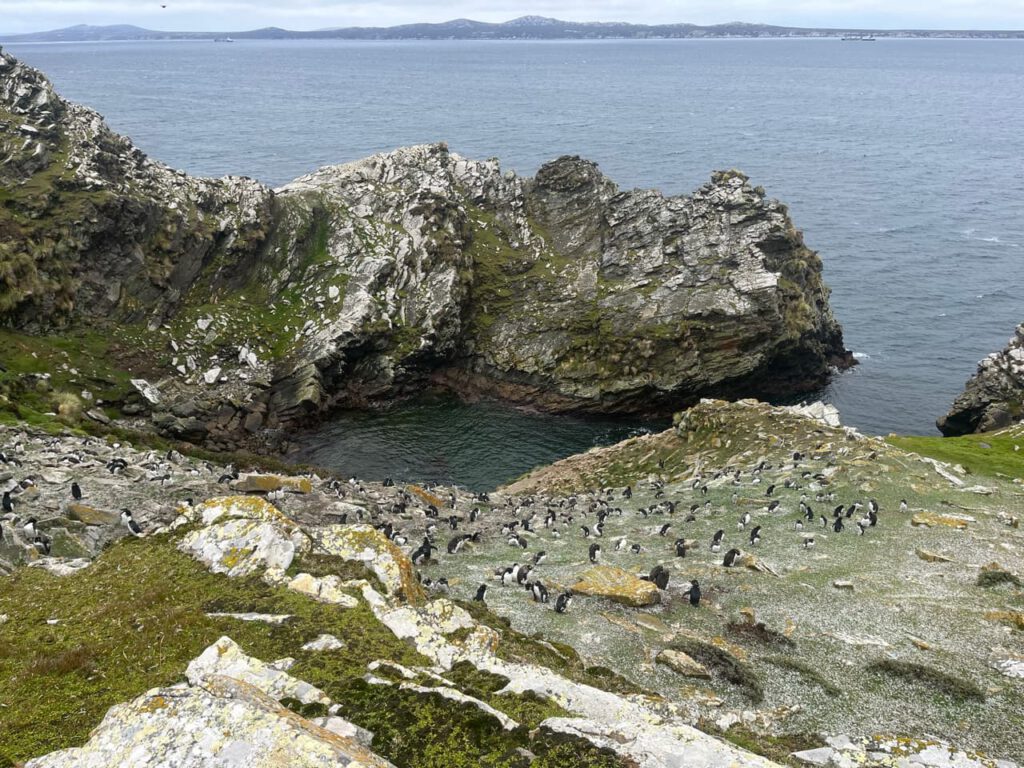
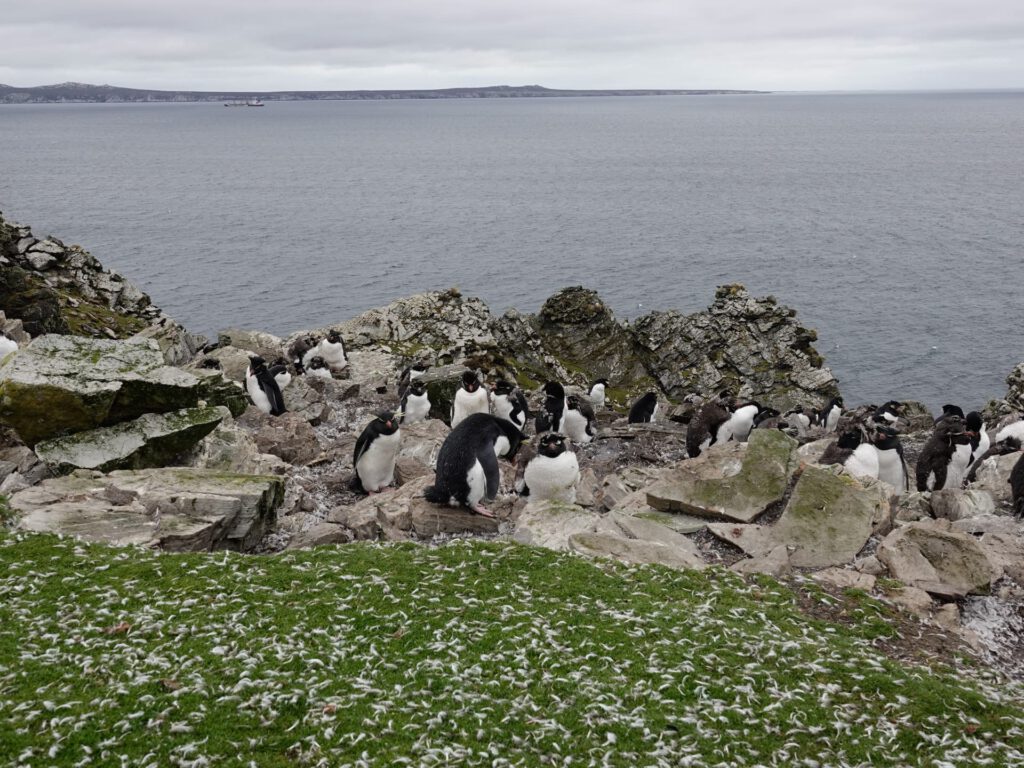
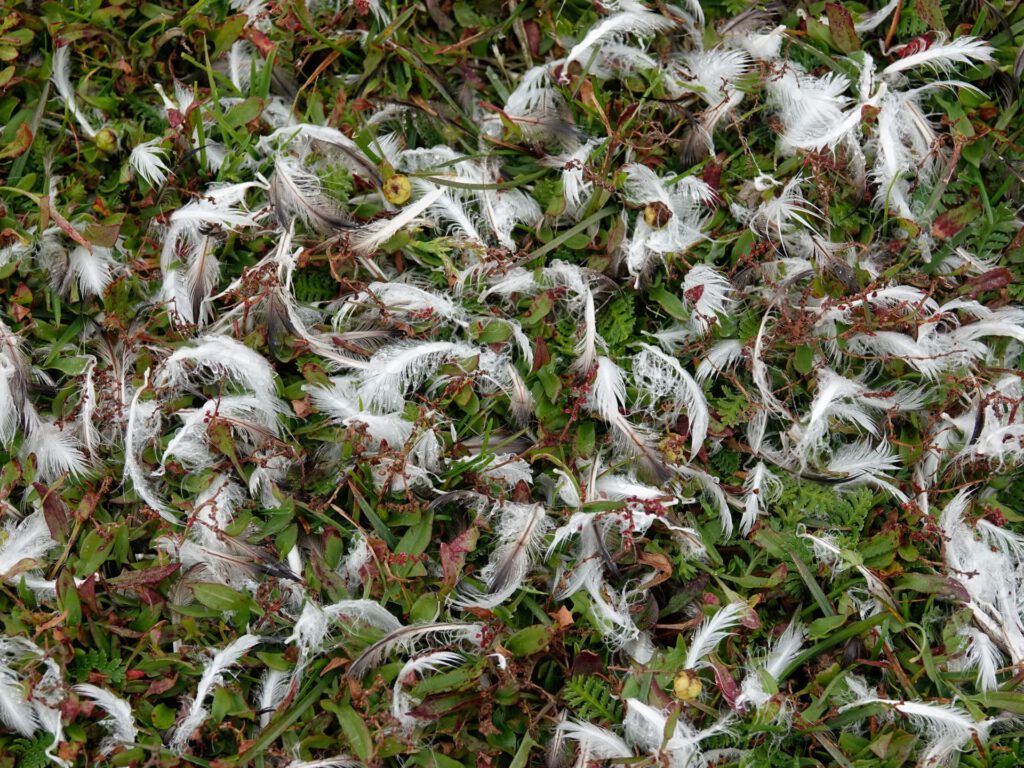
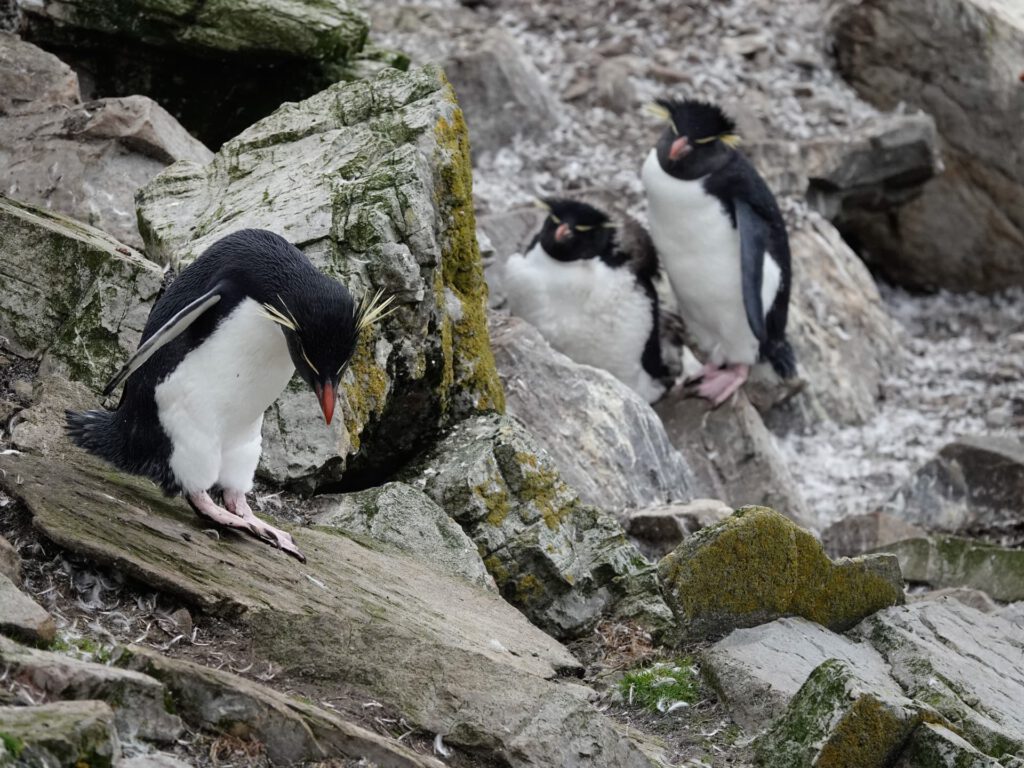
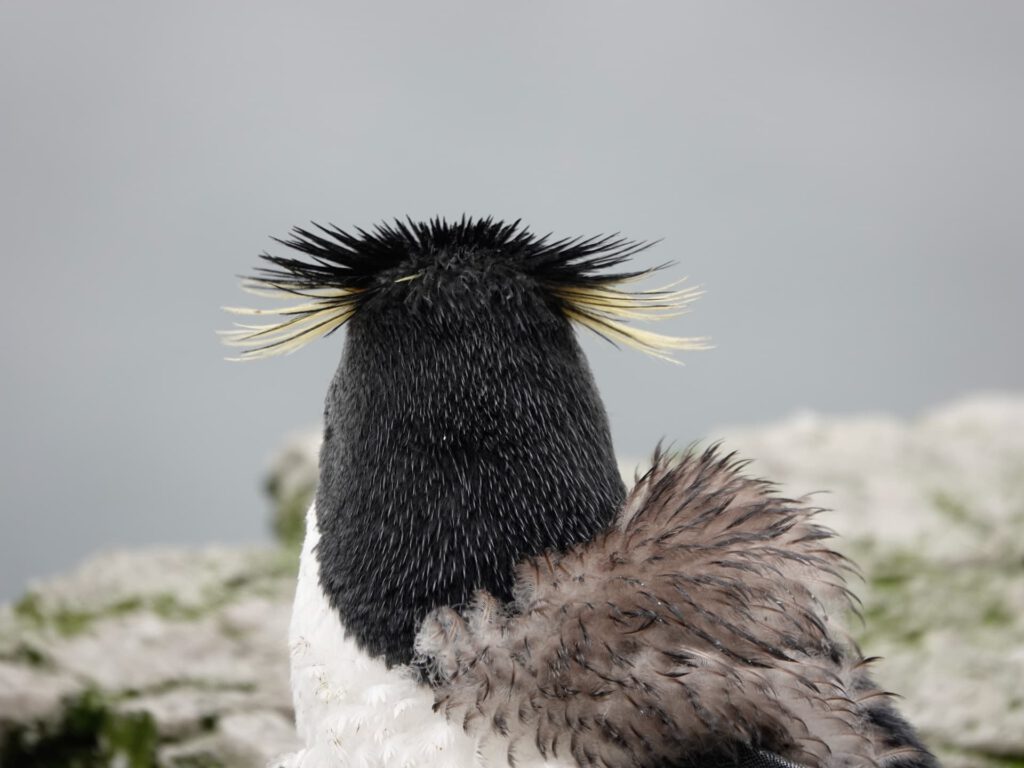
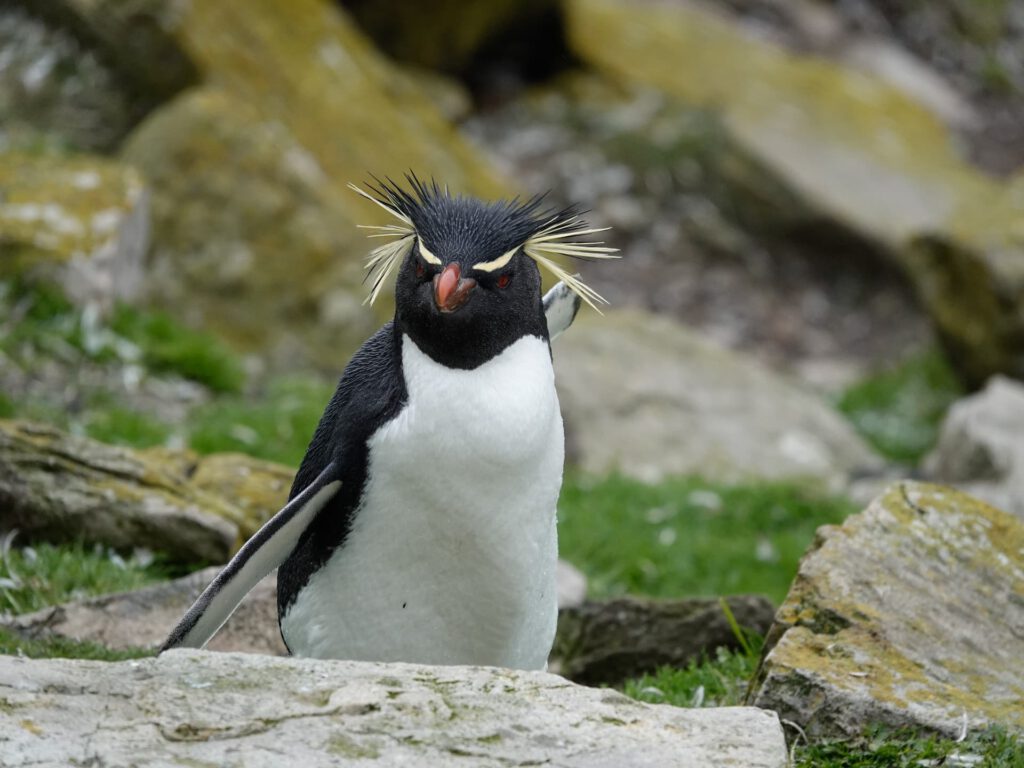
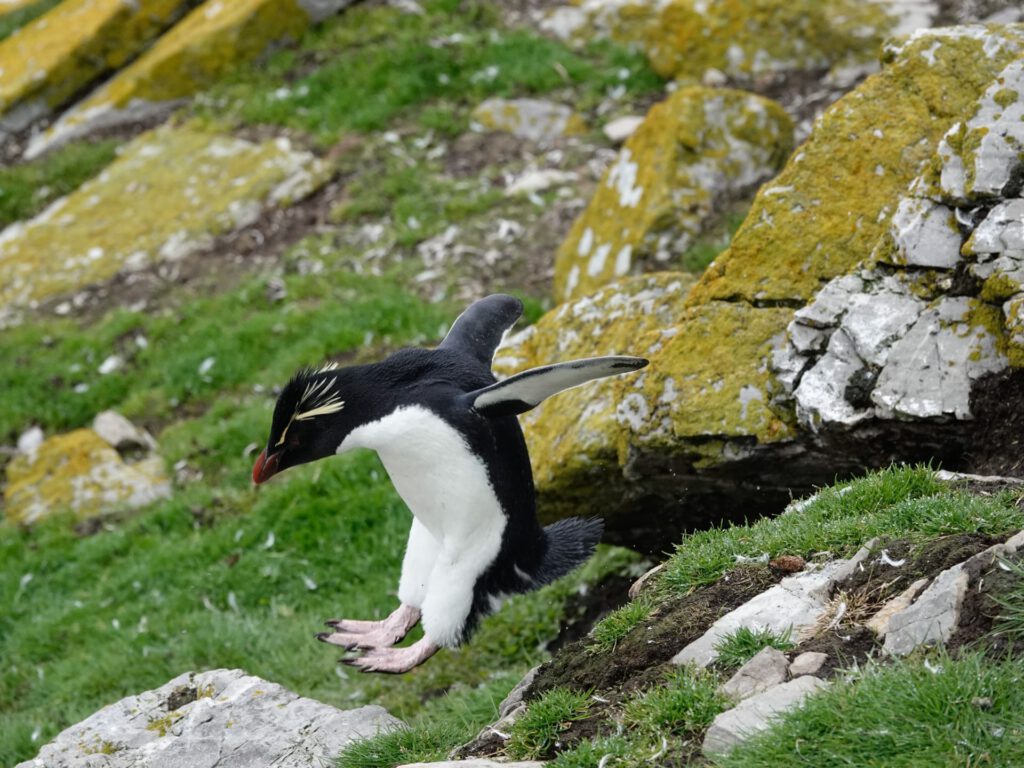
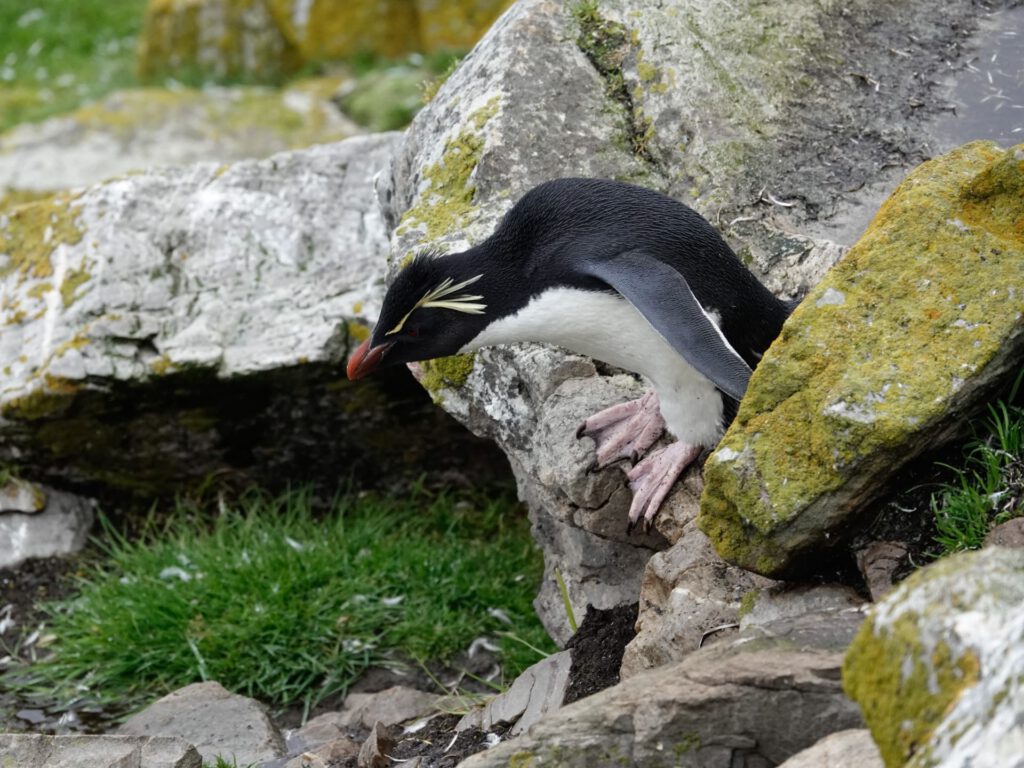
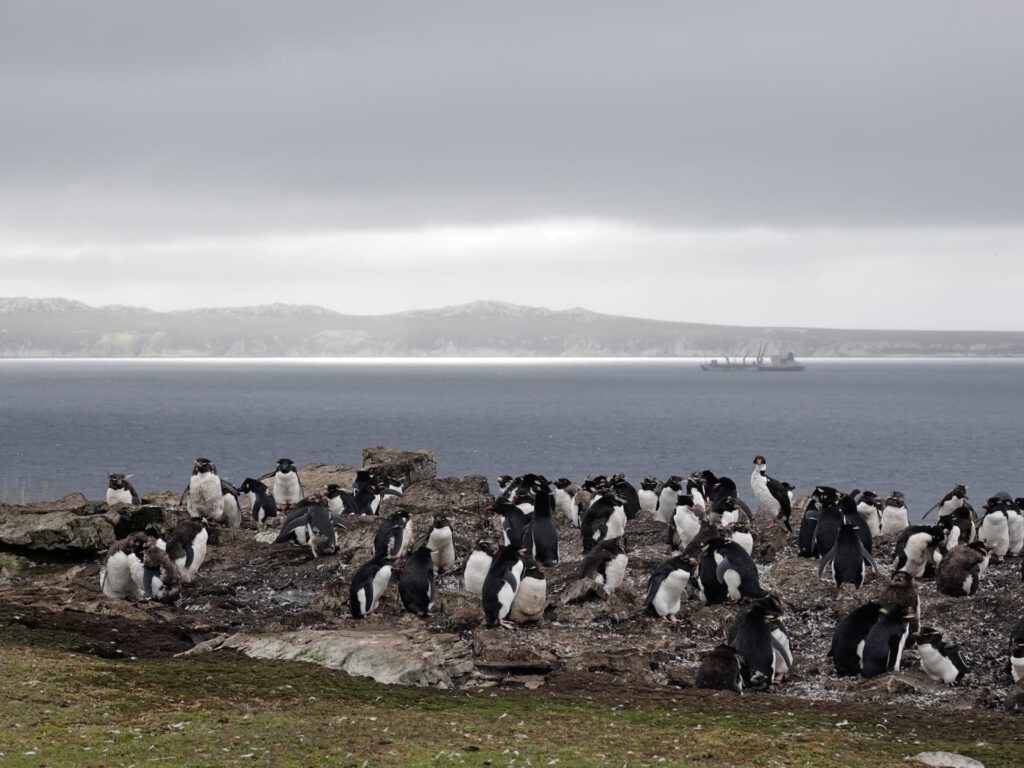
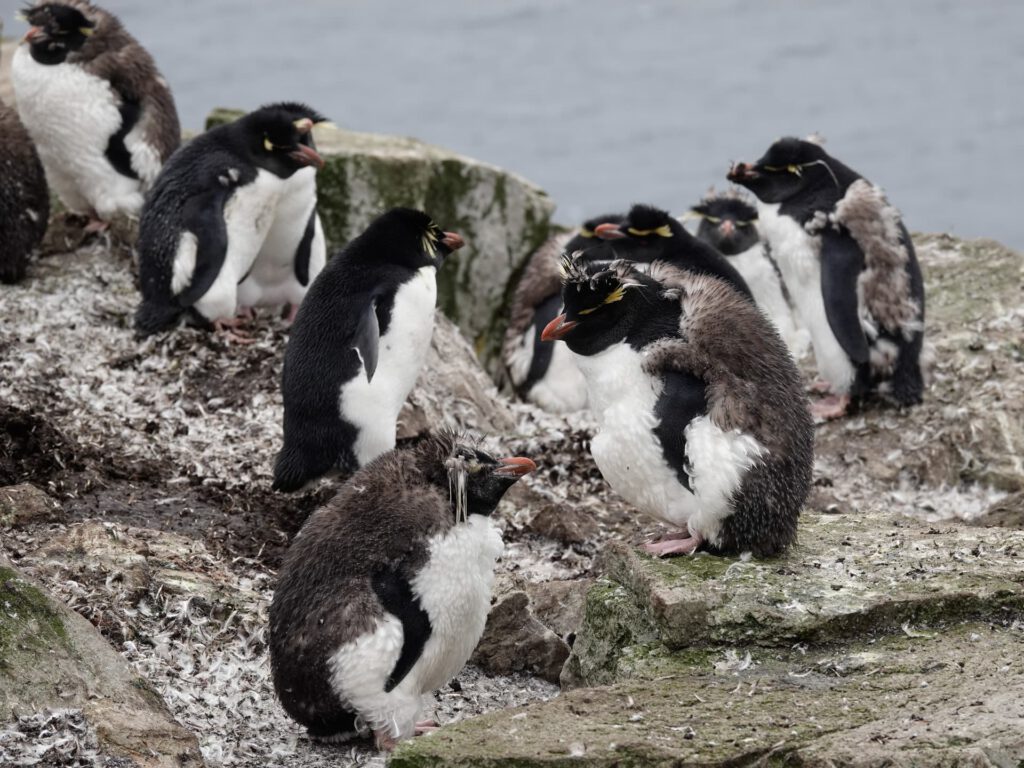
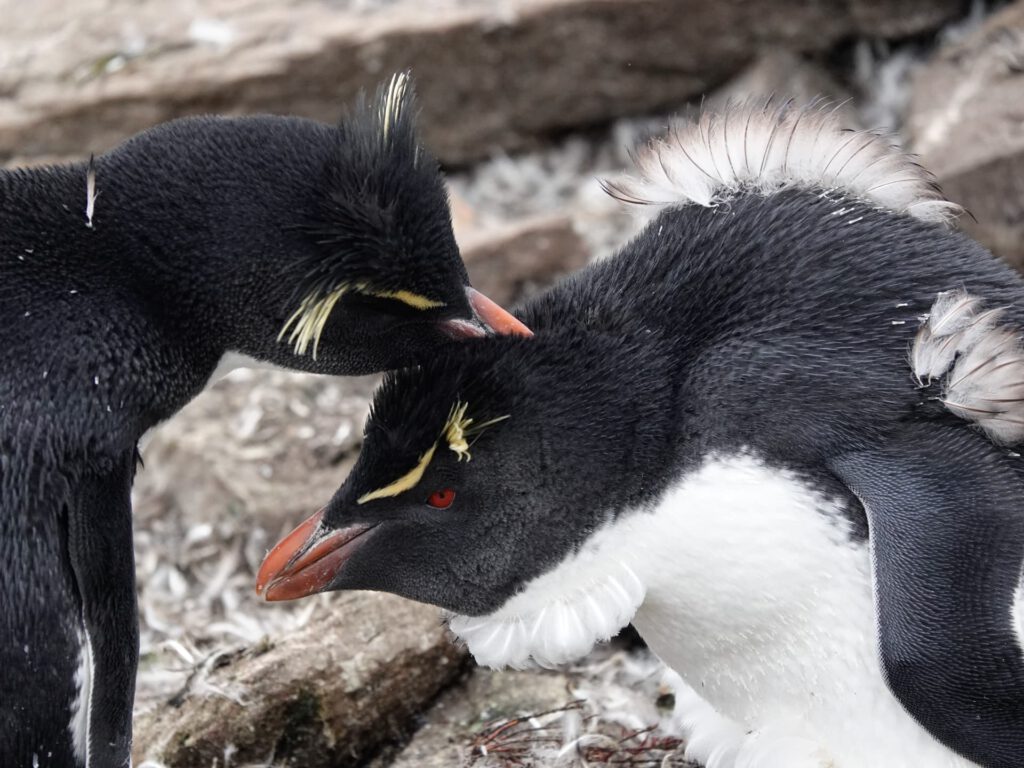
After the trip to the penguins, Adrian and his son showed us around the farm and the wool production, told us about the history of the farm, their life on the Falklands, life as a farmer, sheep farmer, self-supporter and guide in equal measure, and back in Stanley we had coffee and cake as a thank you.
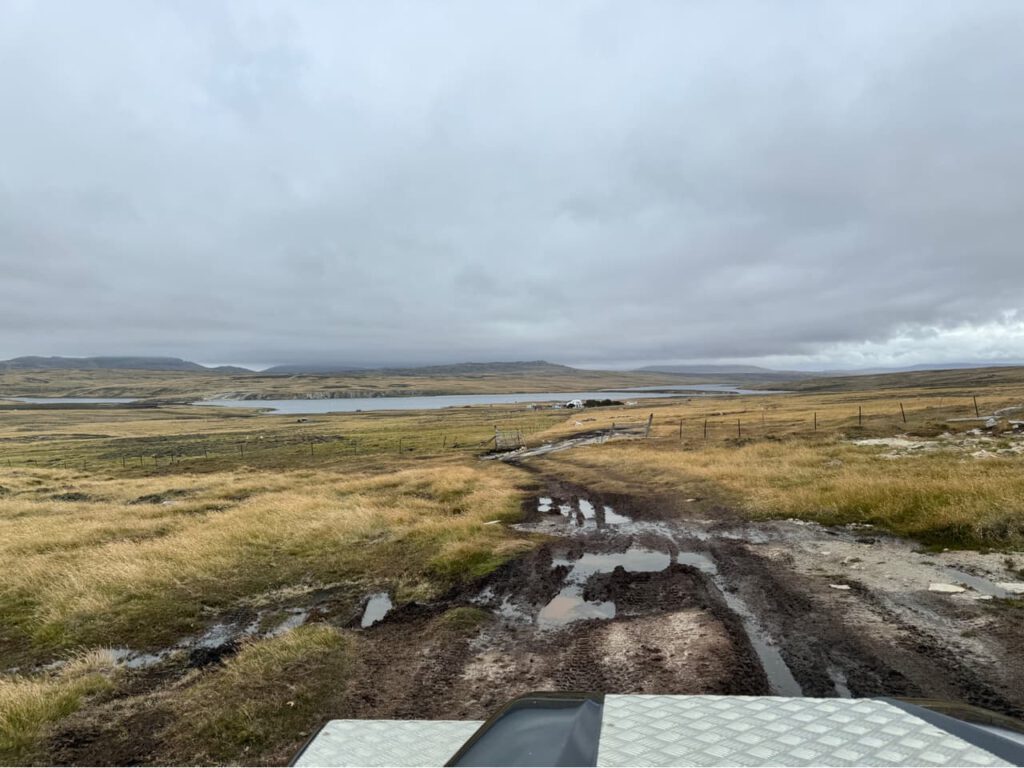
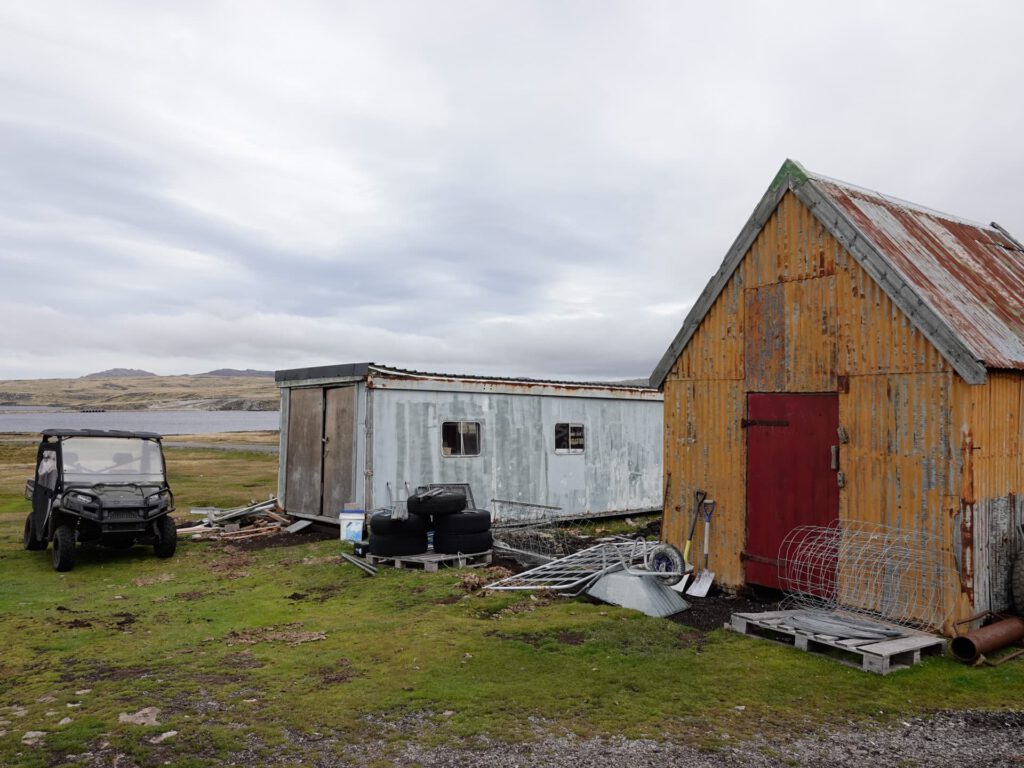
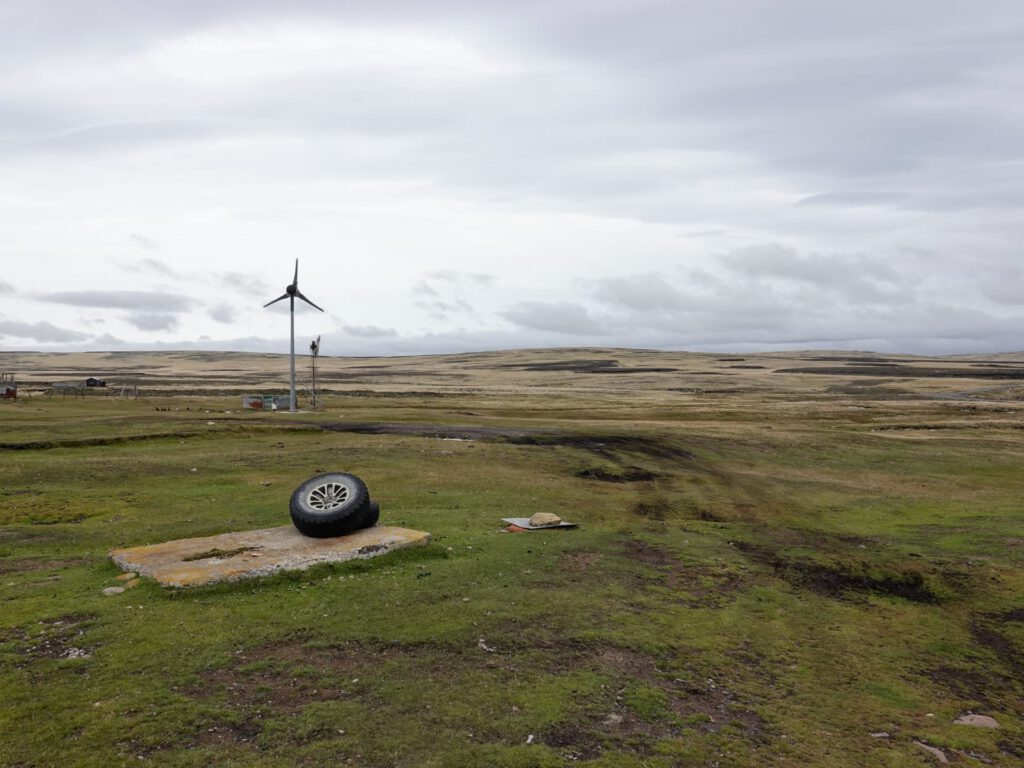
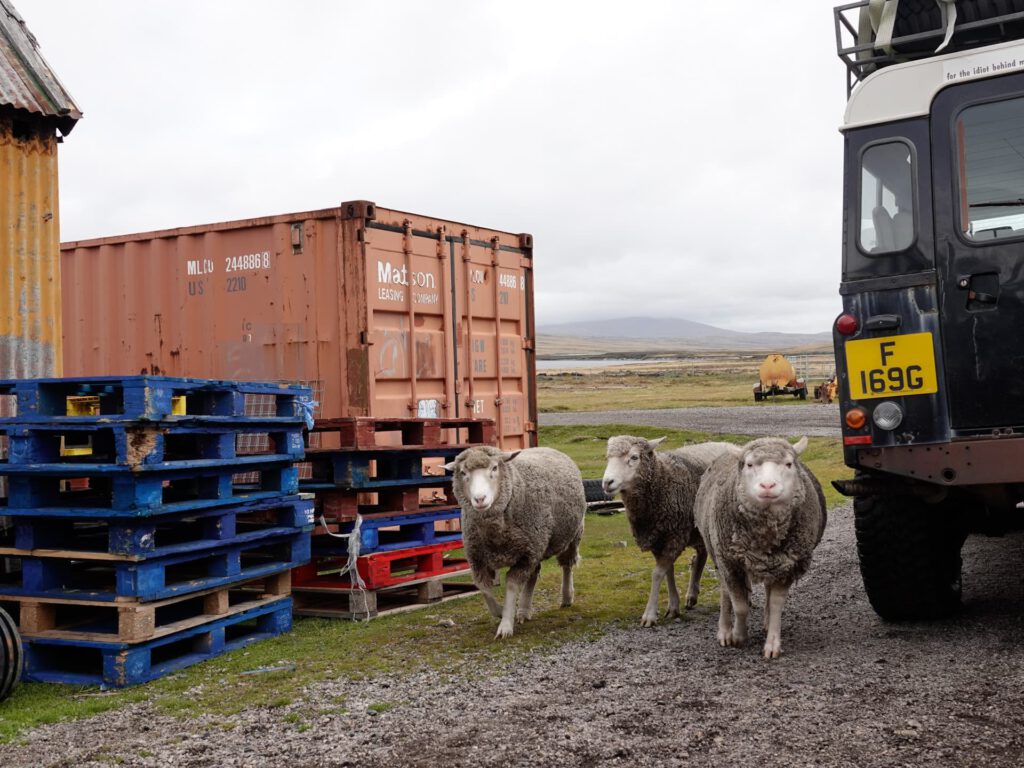
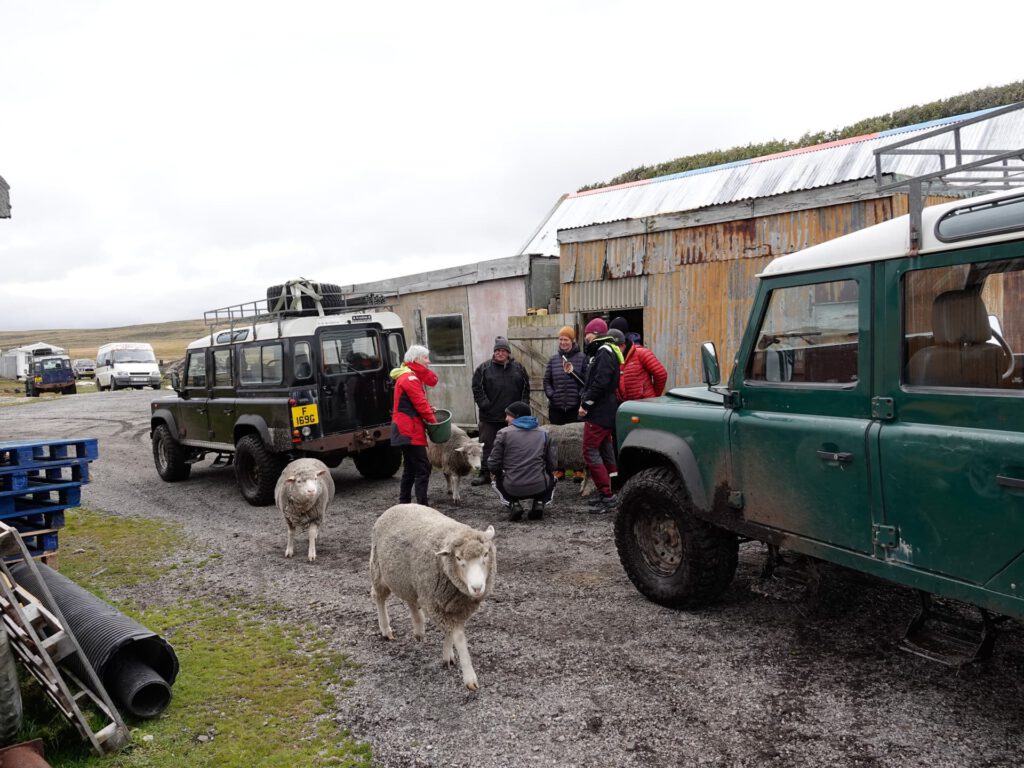
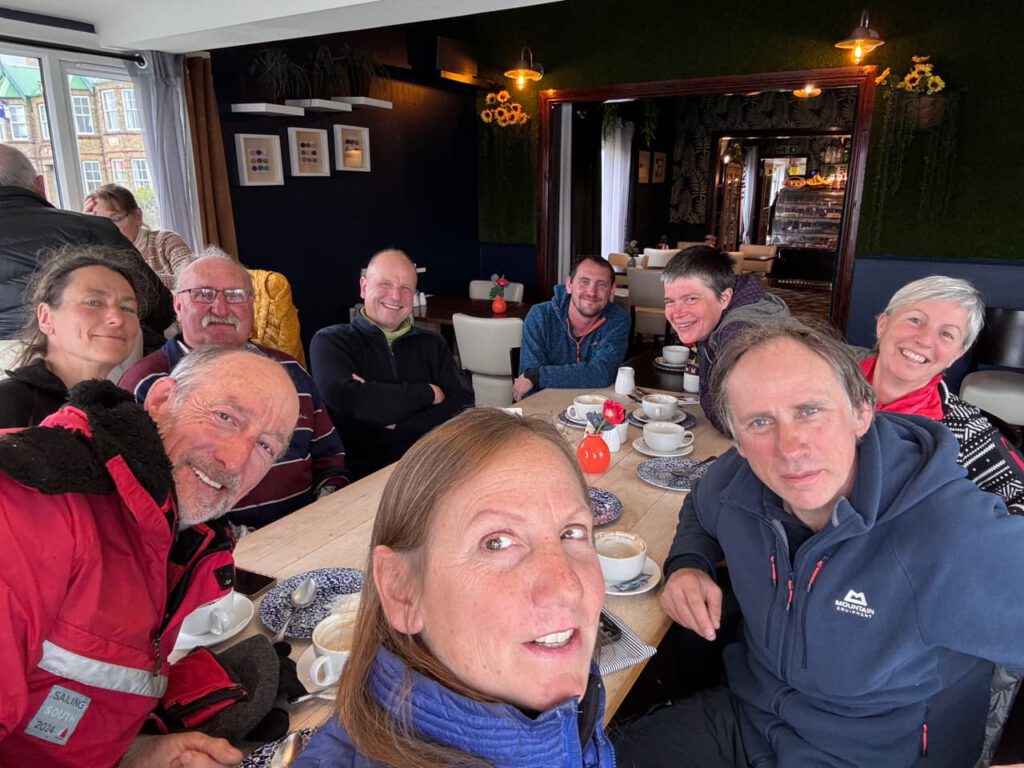
The kings of Volunteer Point
However, the king penguins were a very special highlight.
Not only because we had previously missed them due to our change of plan at the beginning of our trip – not to head for South Georgia. But also because this was our last adventure together as the Selma crew. Unfortunately, only Piotr wasn’t there, but stayed on board to get the Selma ready for the upcoming departure.
And the three-hour journey to the colony at Volunteer Point is certainly an adventure. Three hours one way, mind you. Two of those hours are spent off-road and cross-country through the – at this time of year – extremely damp, soft peat landscape. Fortunately, we had two experienced drivers at the wheel, Artur and Susan. Nevertheless, we got stuck several times and had to pull each other out of the mud each time. It was exciting, thrilling, quite bumpy, but also a lot of fun.
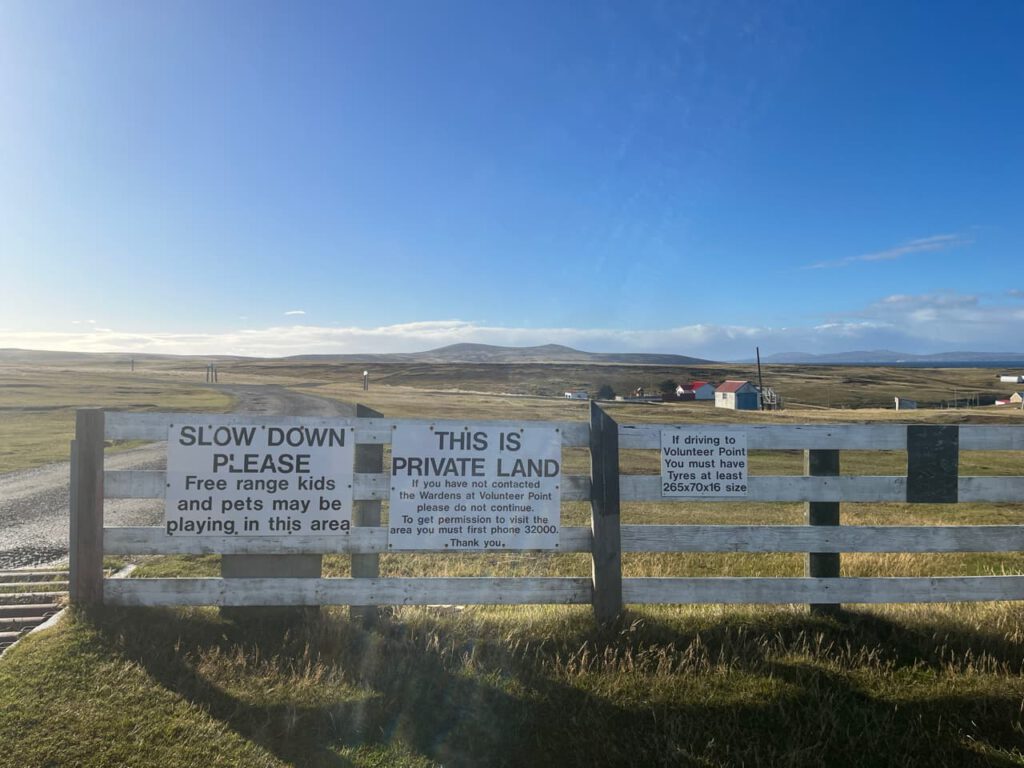
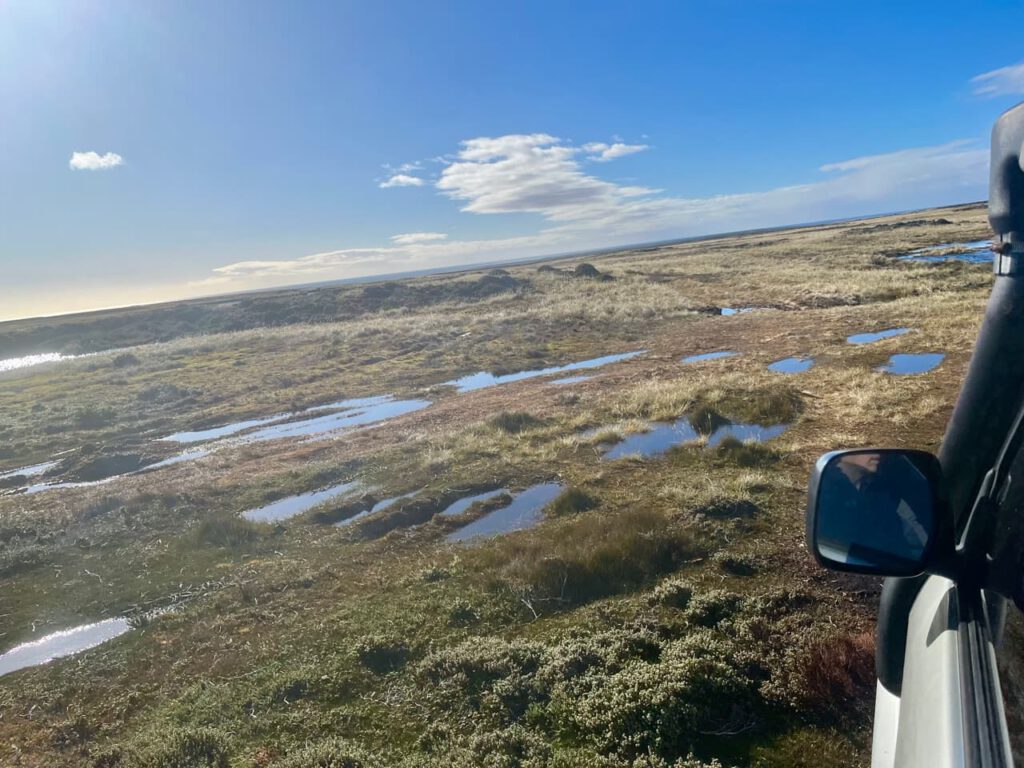
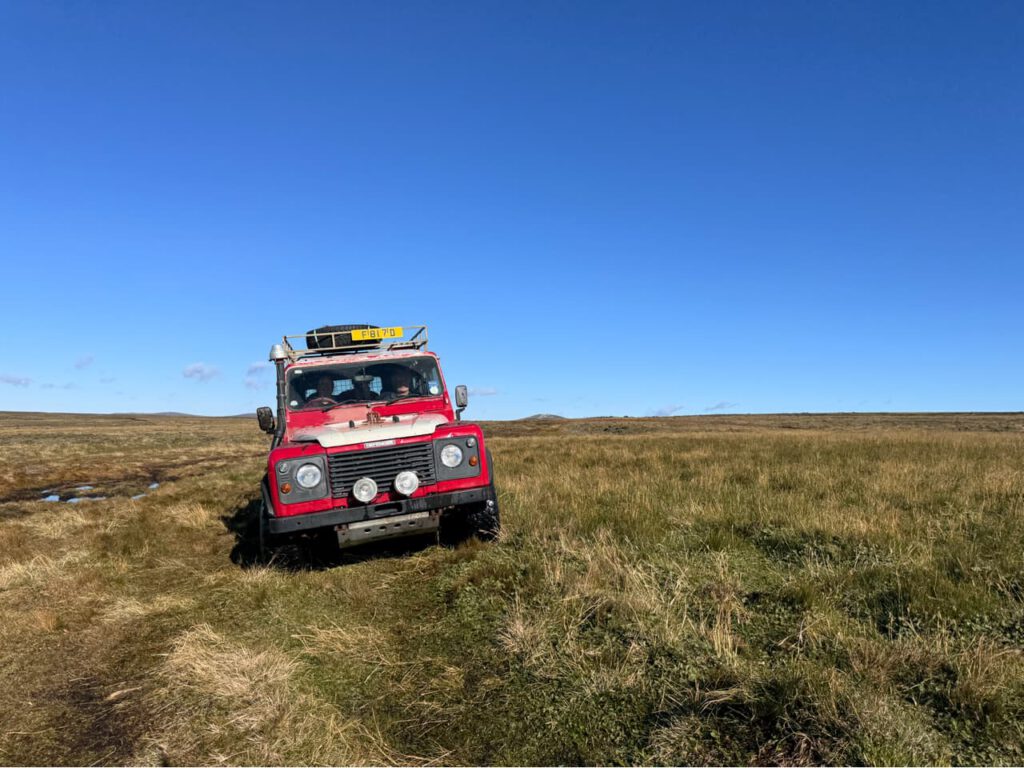
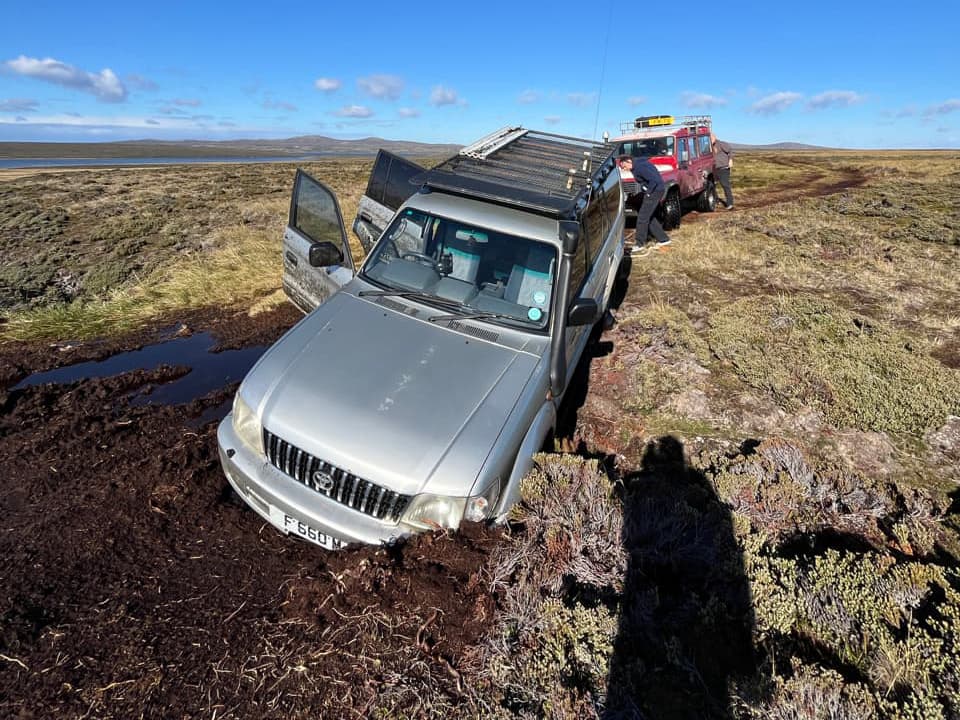
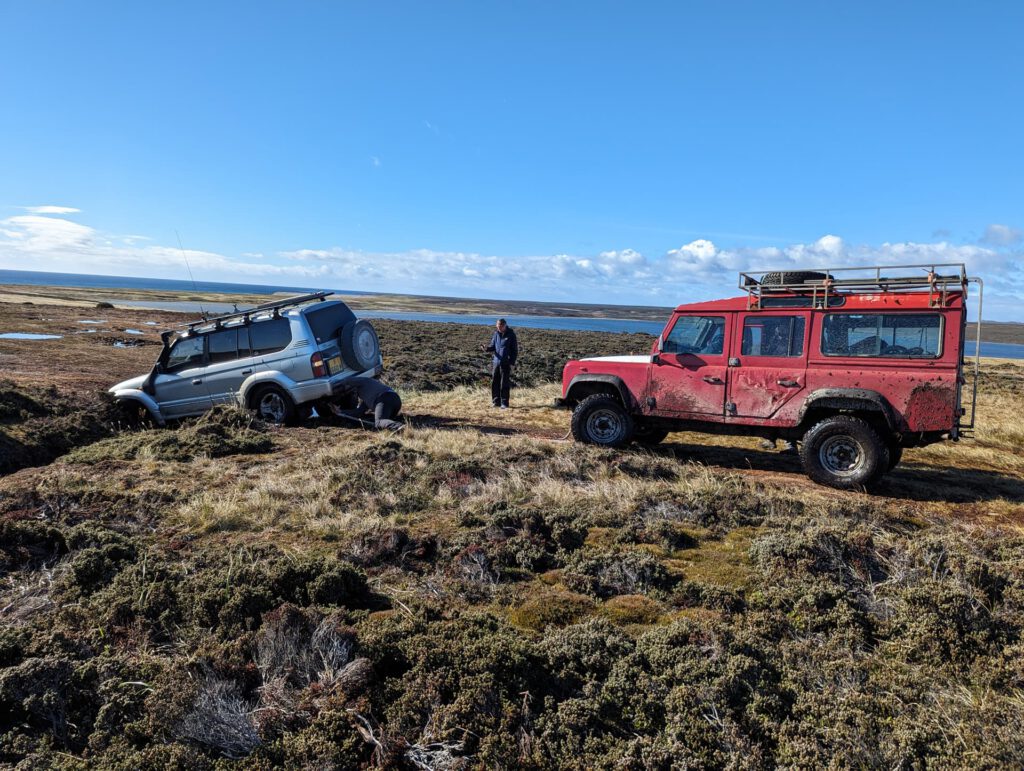
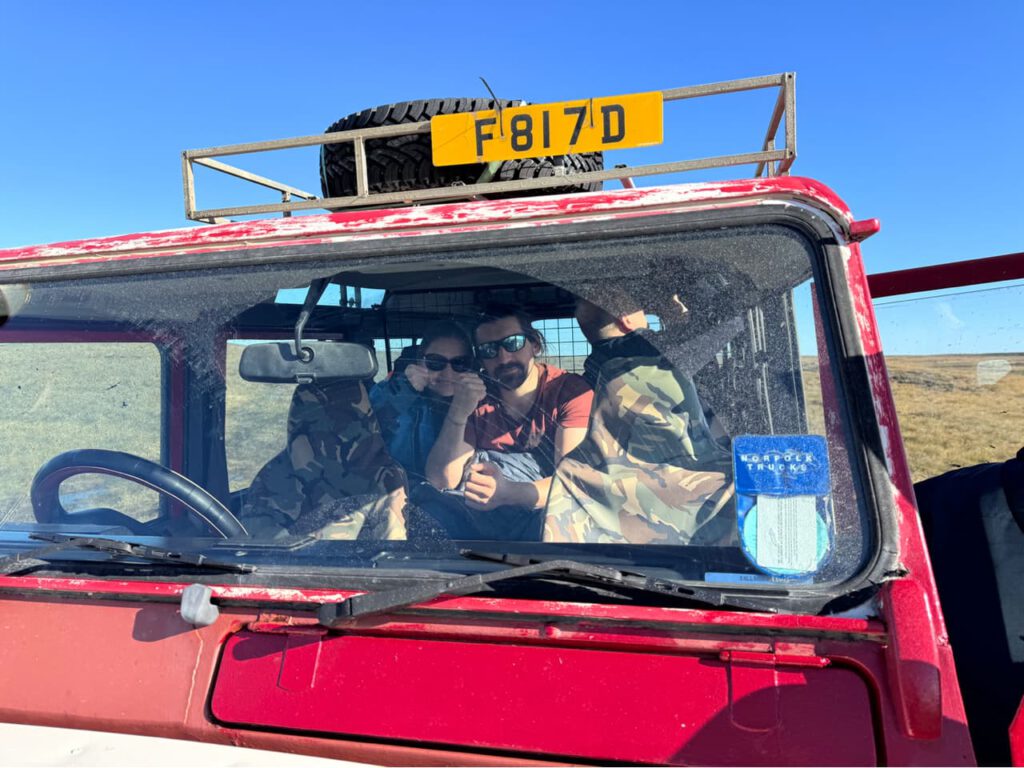
And the long journey was worth it in every respect.
Volunteer Point is a nature reserve privately owned by Johnson’s Harbour Farm. In addition to gentoo and Magellanic penguins, cormorants, dolphins and sea lions, it is home to the largest colony of king penguins in the Falklands. Around 1,500 breeding pairs live here and raise between 600 and 700 chicks each year. They move back and forth between the two miles of white sandy beach and the green grassland of the breeding colony. Just like us, who spent two hours here marvelling and watching in awe.
We observe king penguins individually or in groups, along with their very own dynamic. On the beach, in the water, on the way to the colony. Swimming, lying on their bellies, upright. They look so serious when they walk past at a leisurely pace. Often in small flocks. The adults are beautiful and colourful. The chicks in their thick, brown fluff are the complete opposite: so clumsy and somewhat awkward. Always under observation and protected by the colony. Waiting for the parent to bring food.
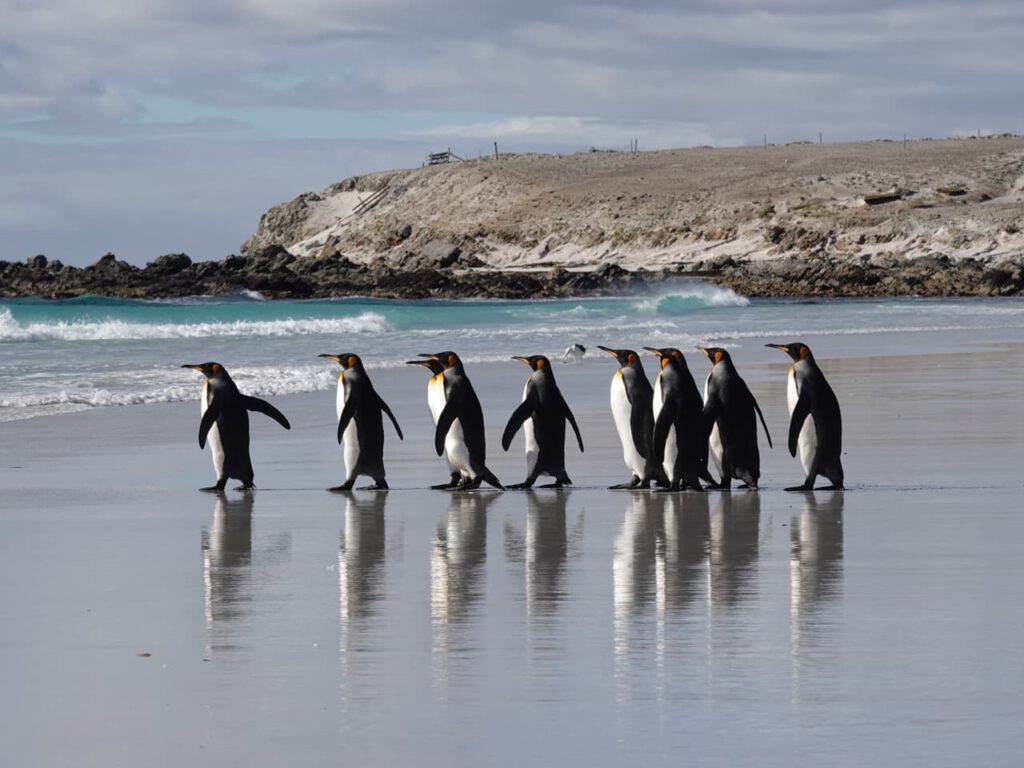
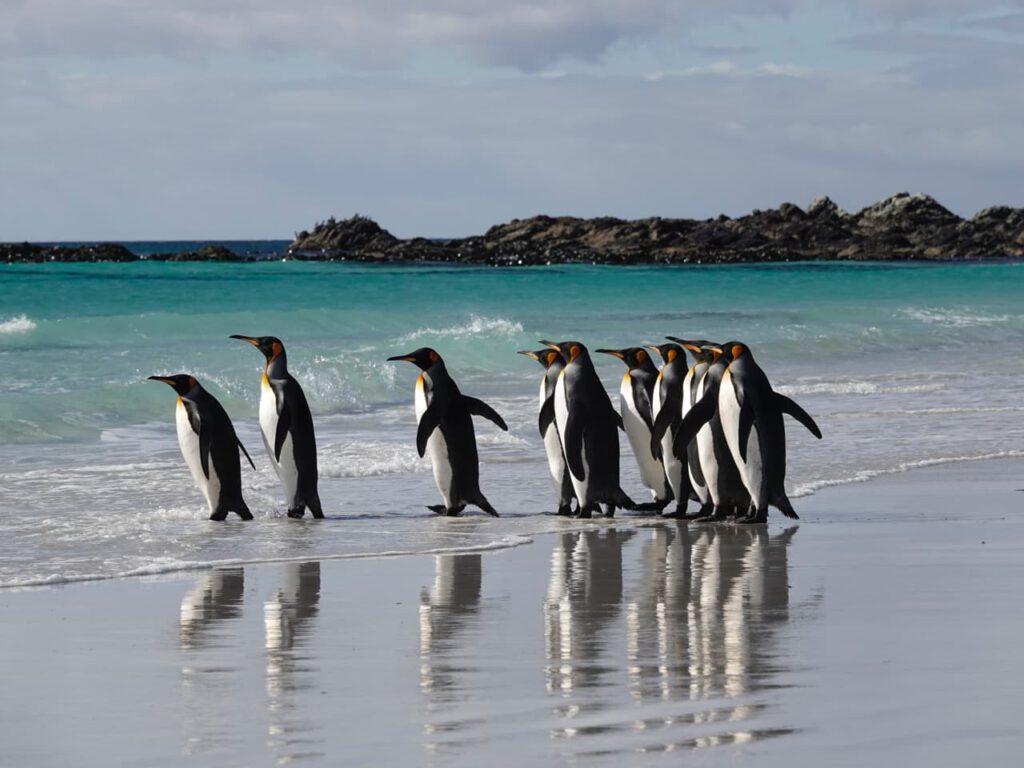
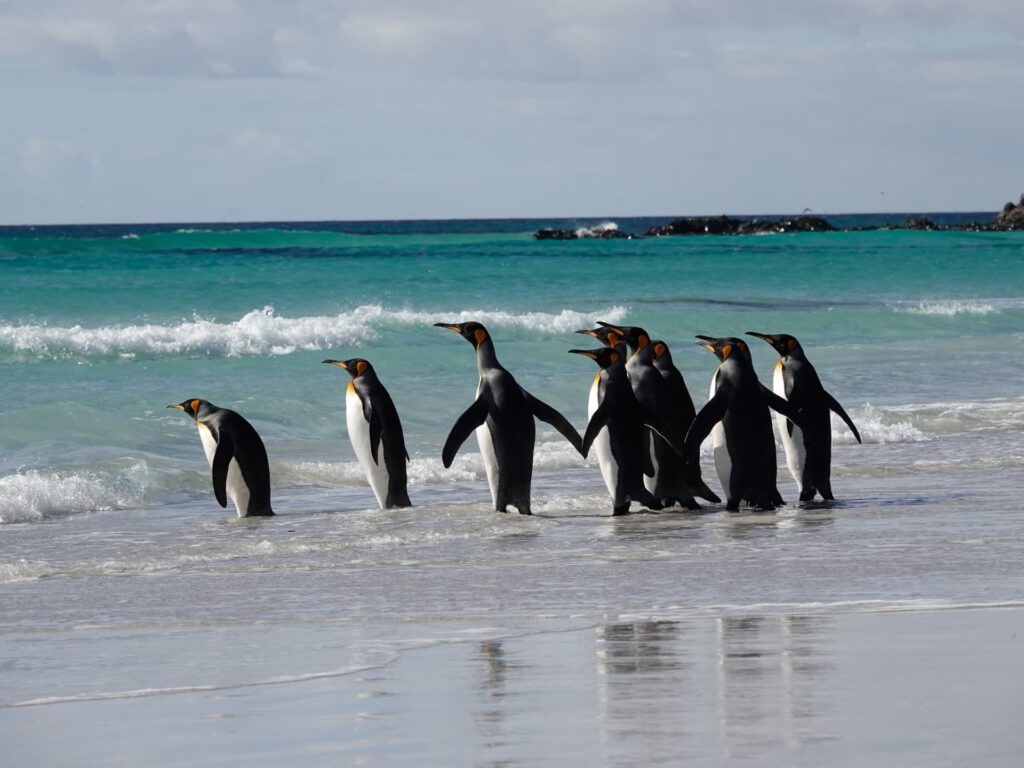
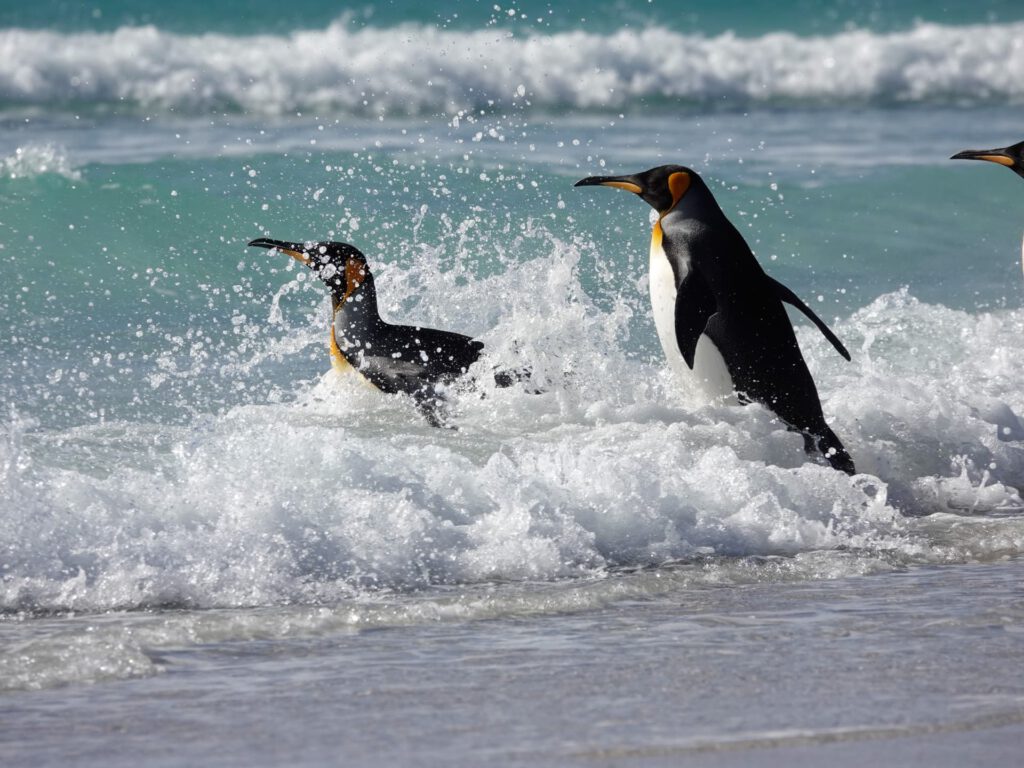
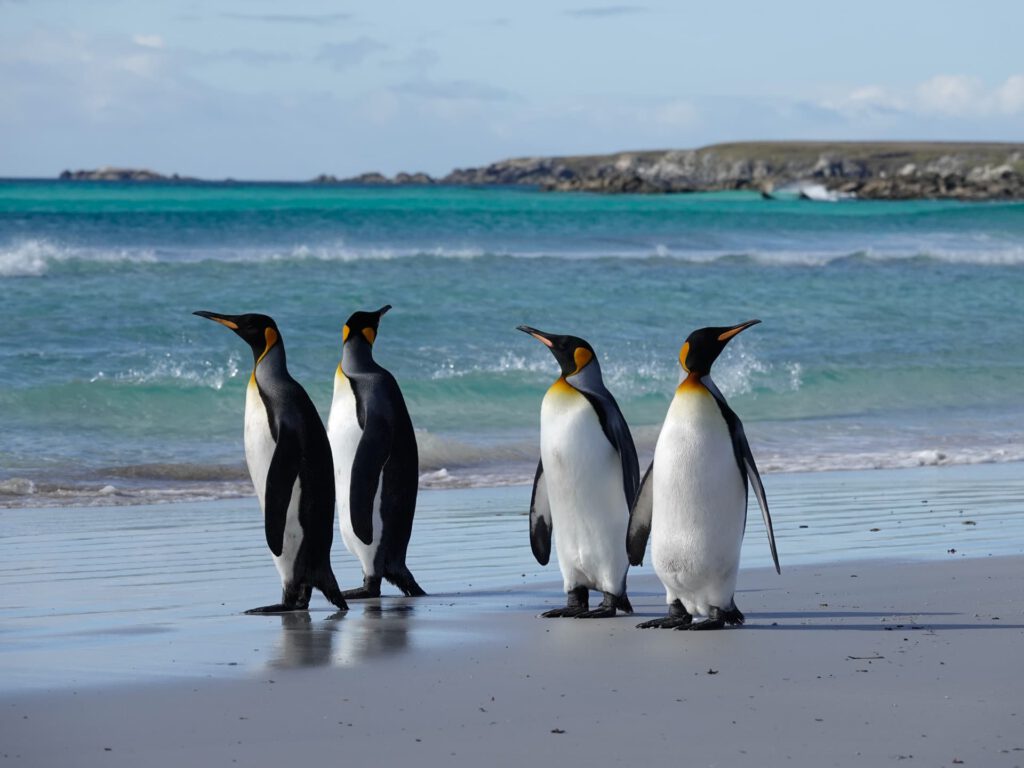
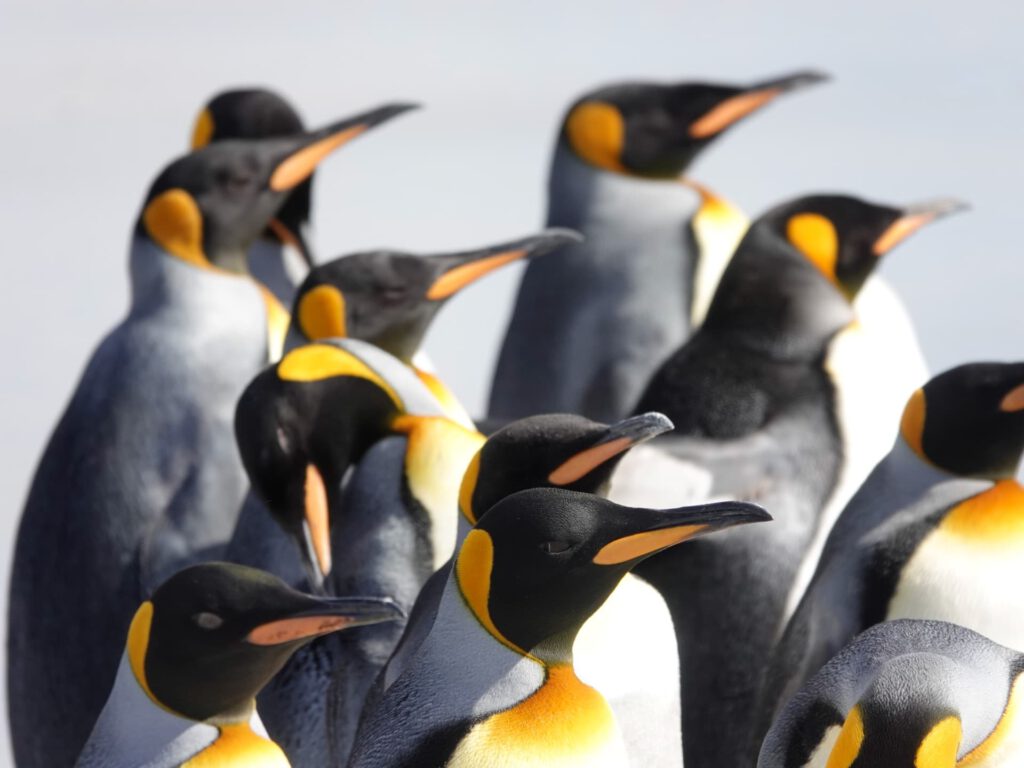
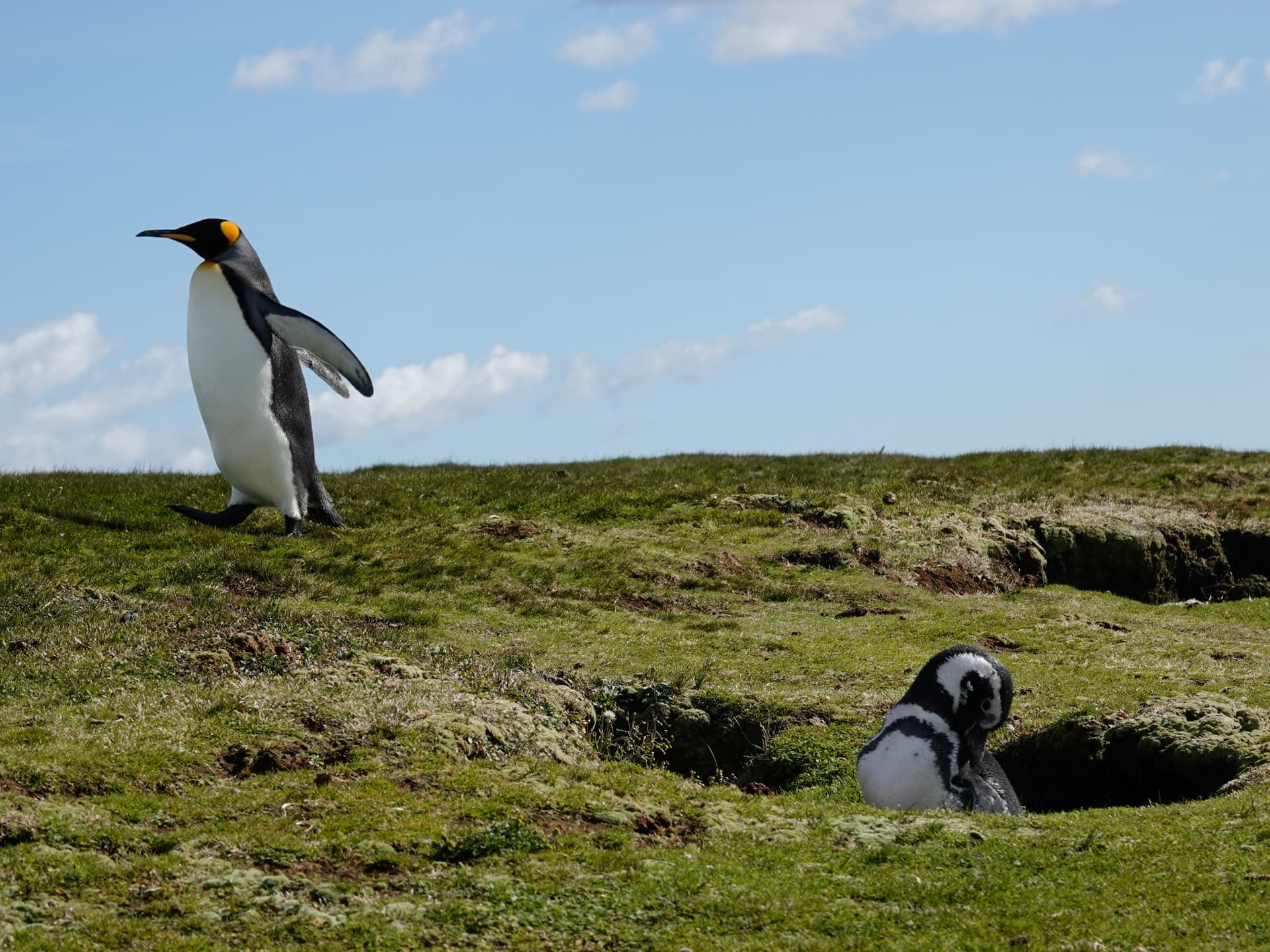
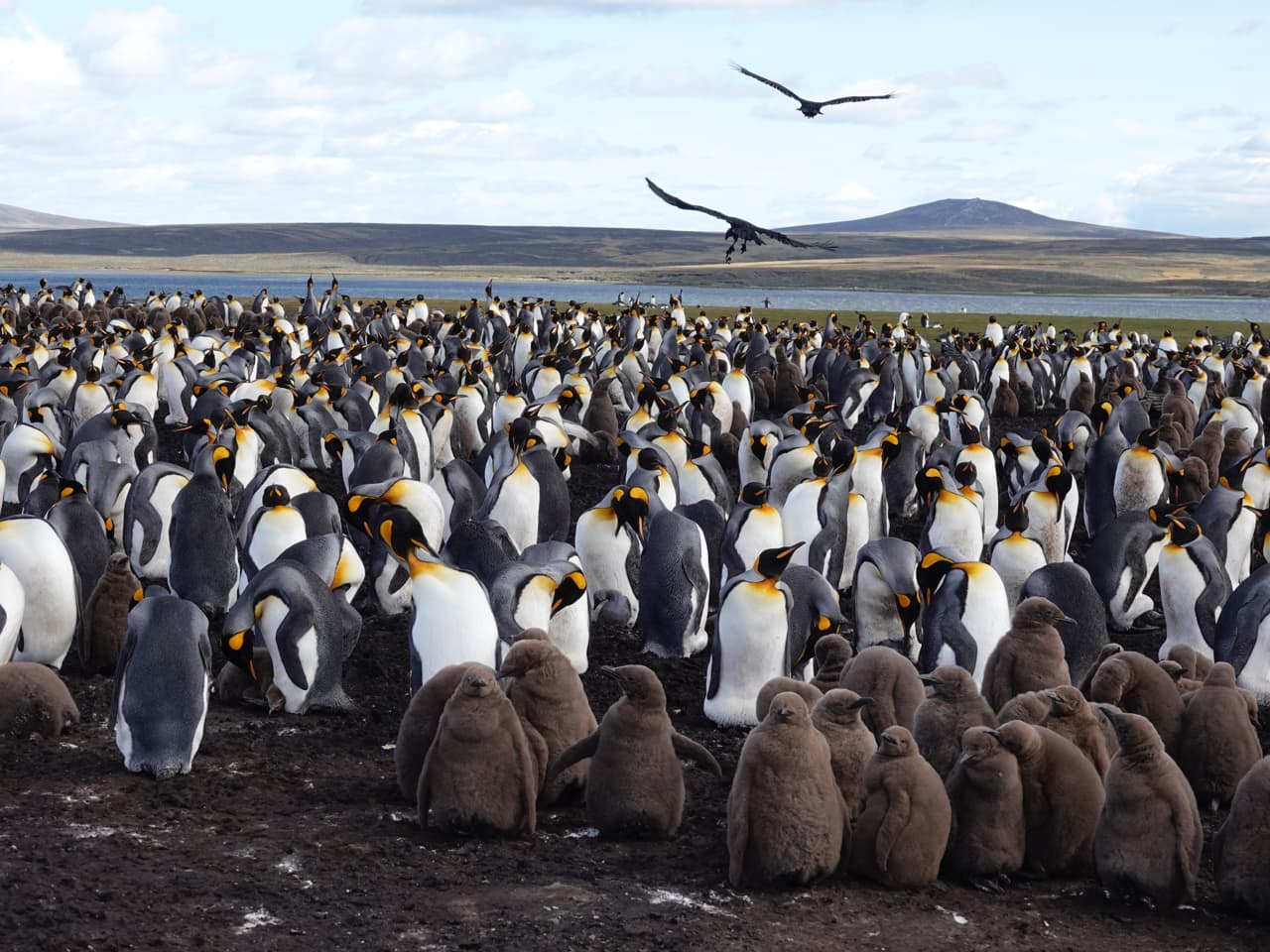
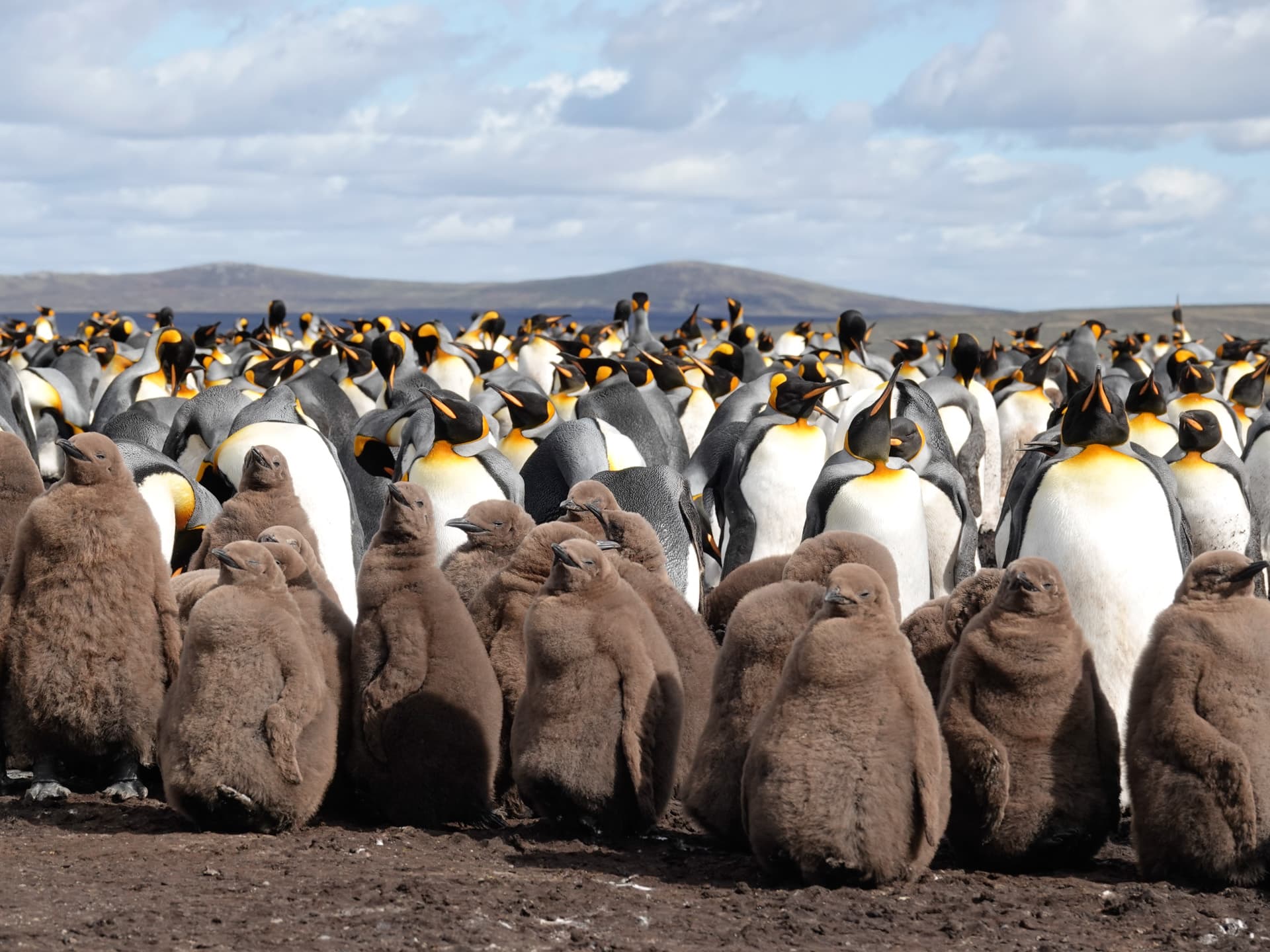
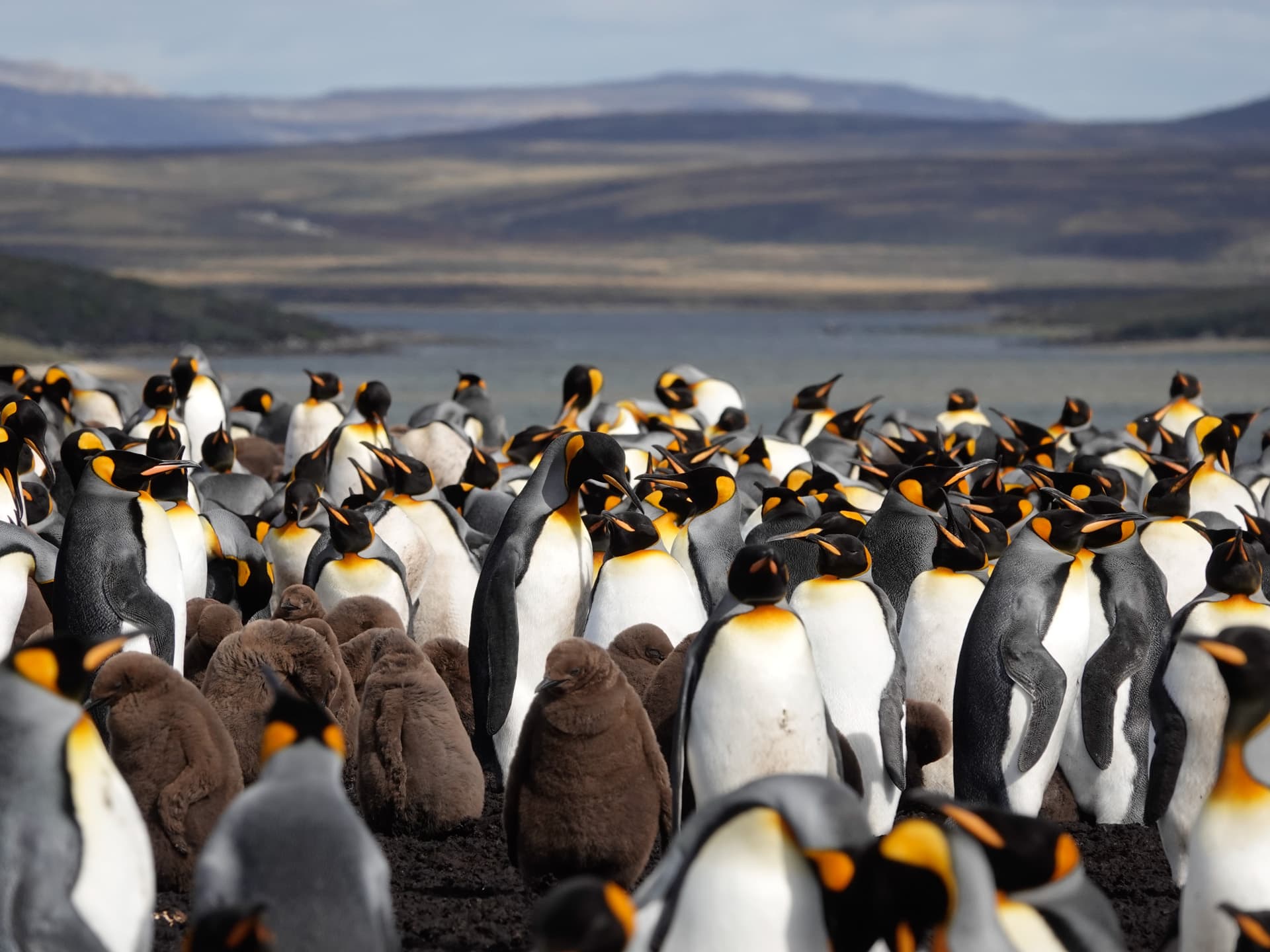
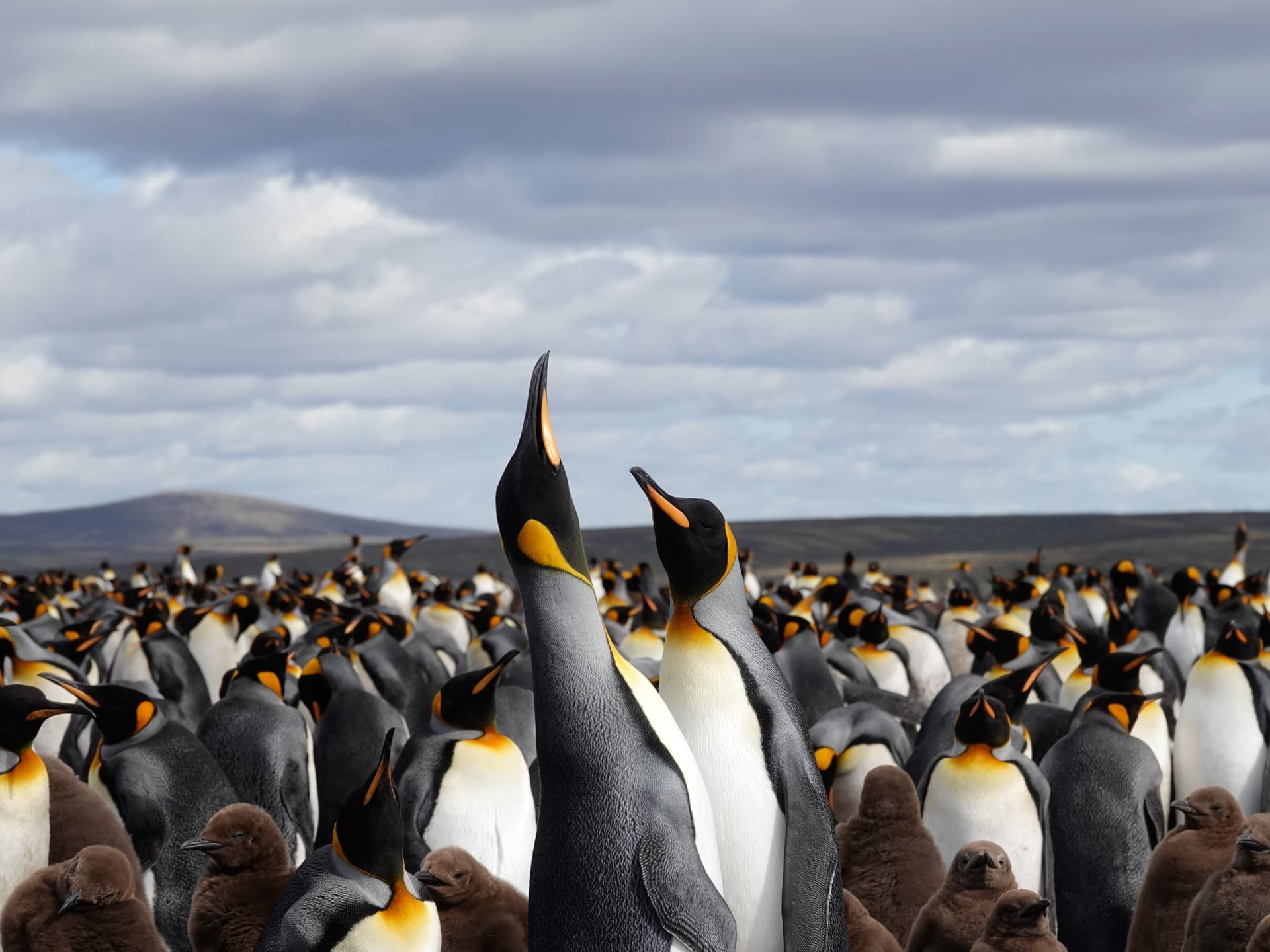
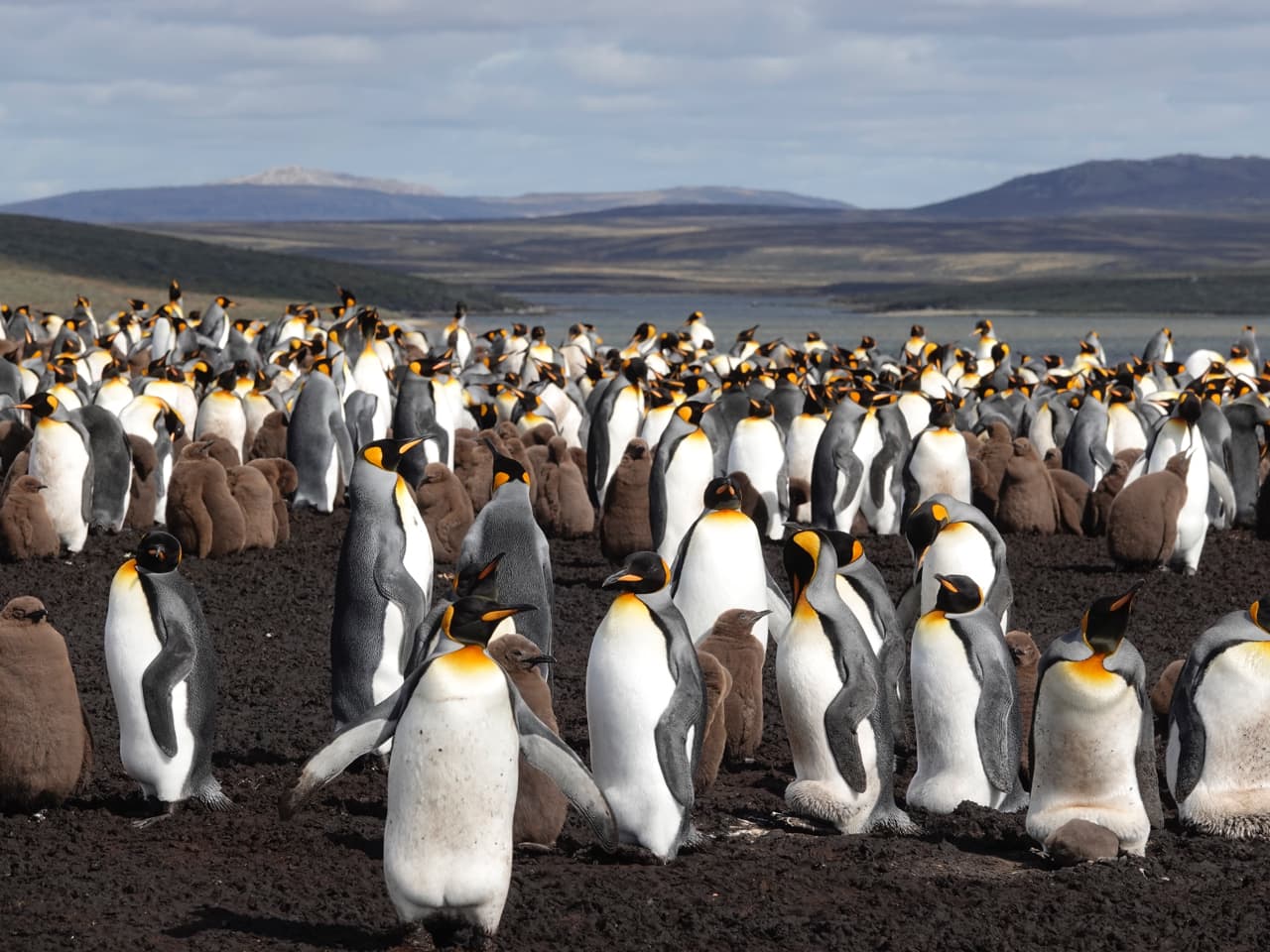
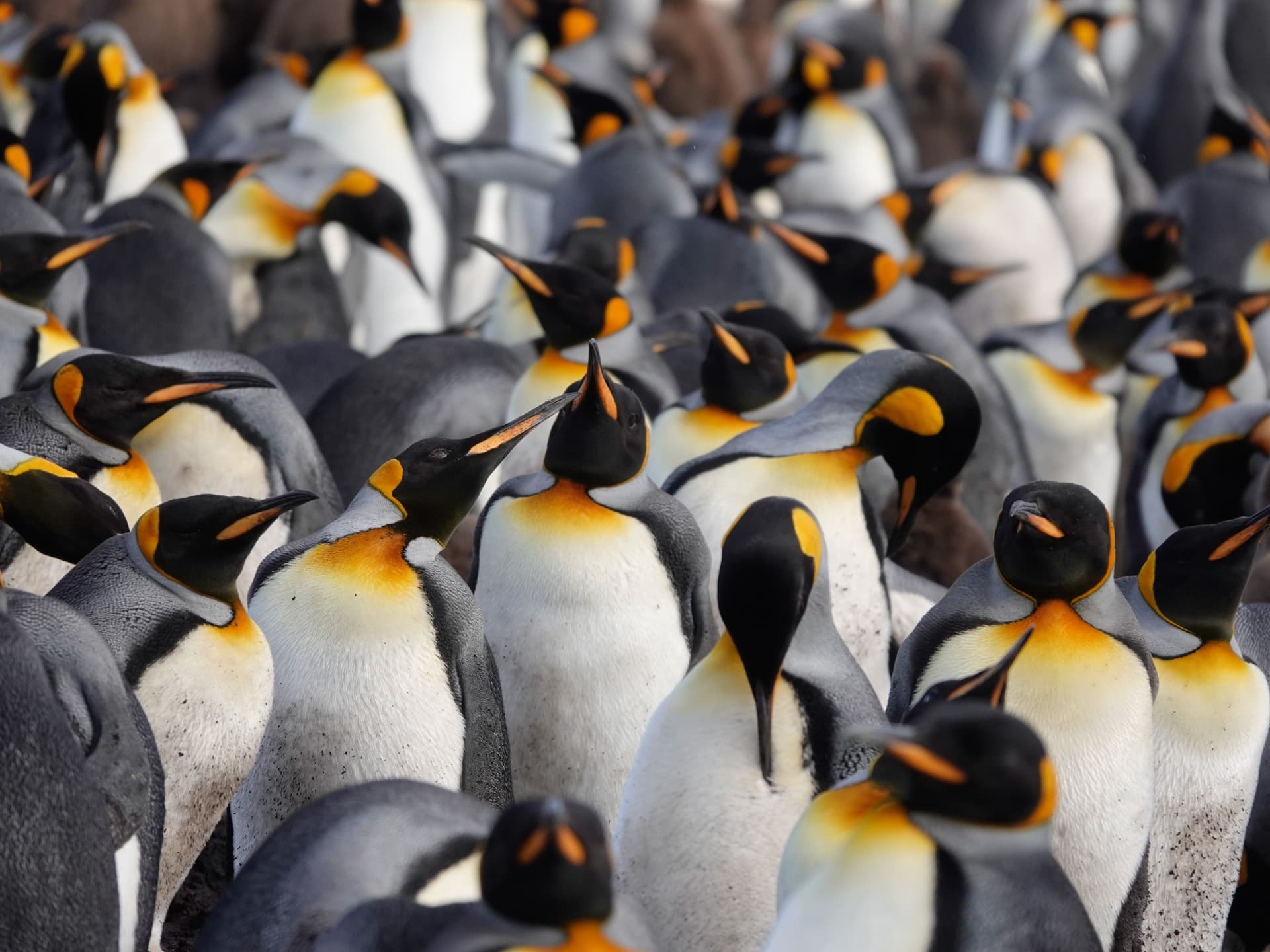
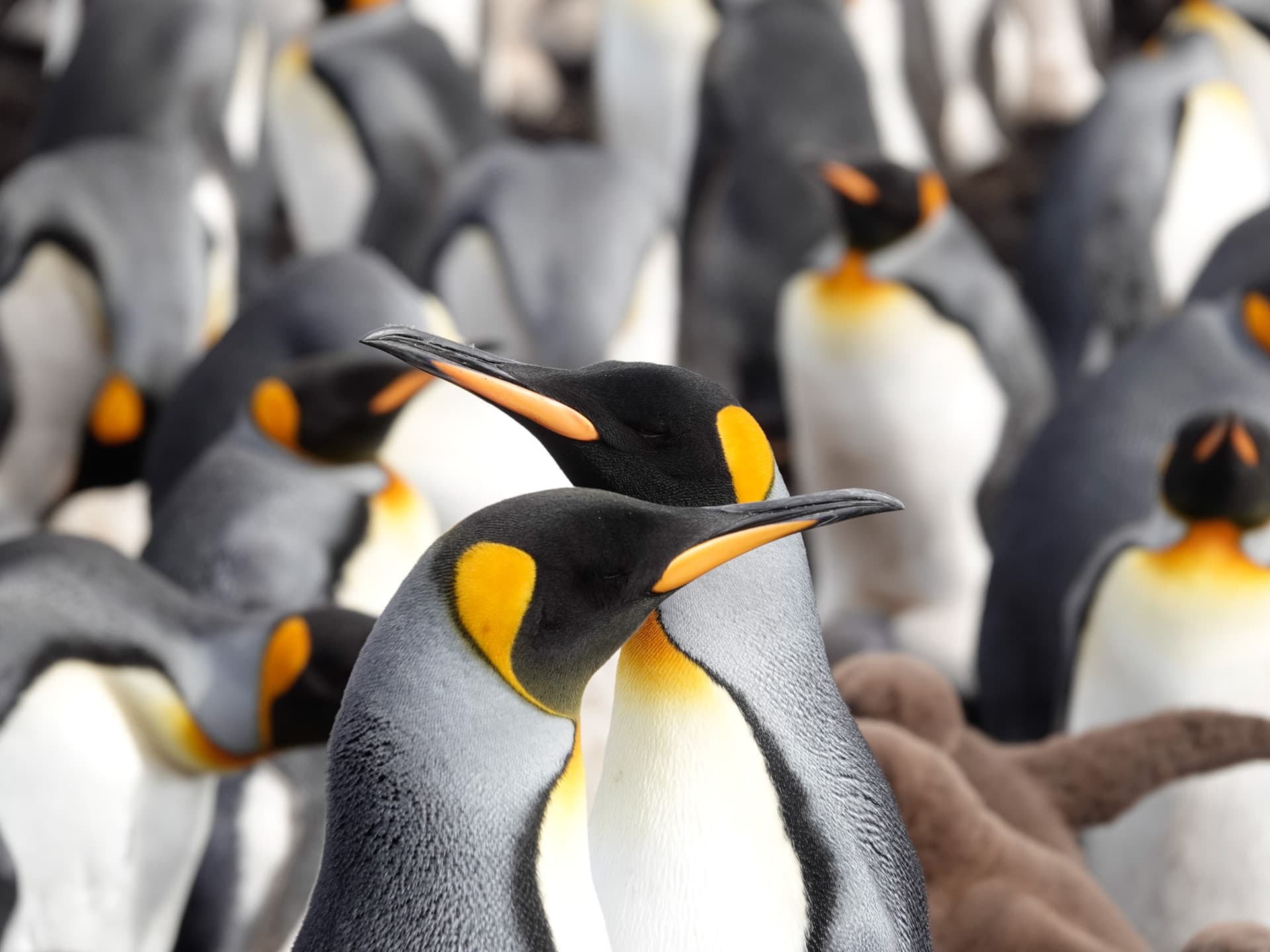
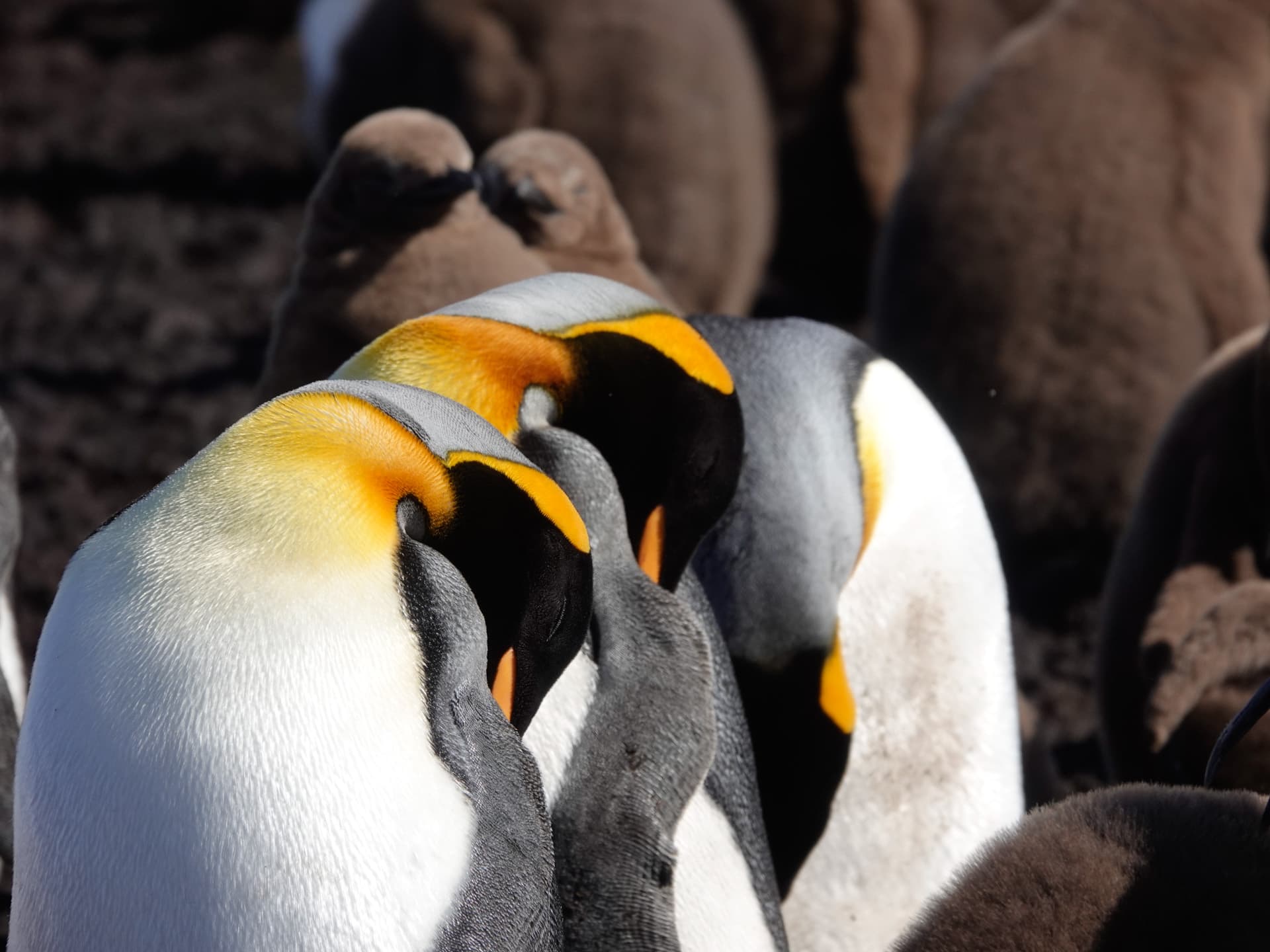
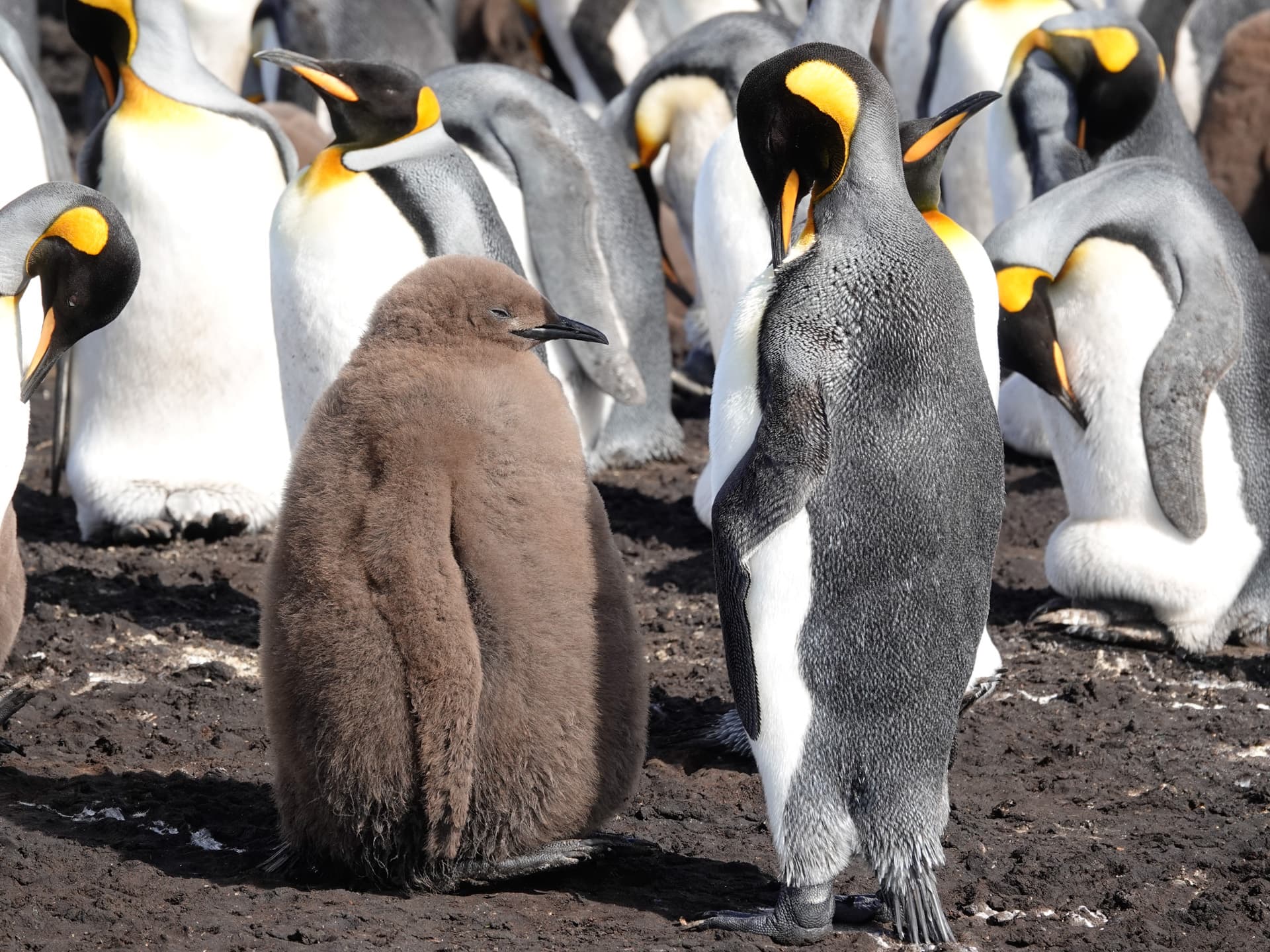
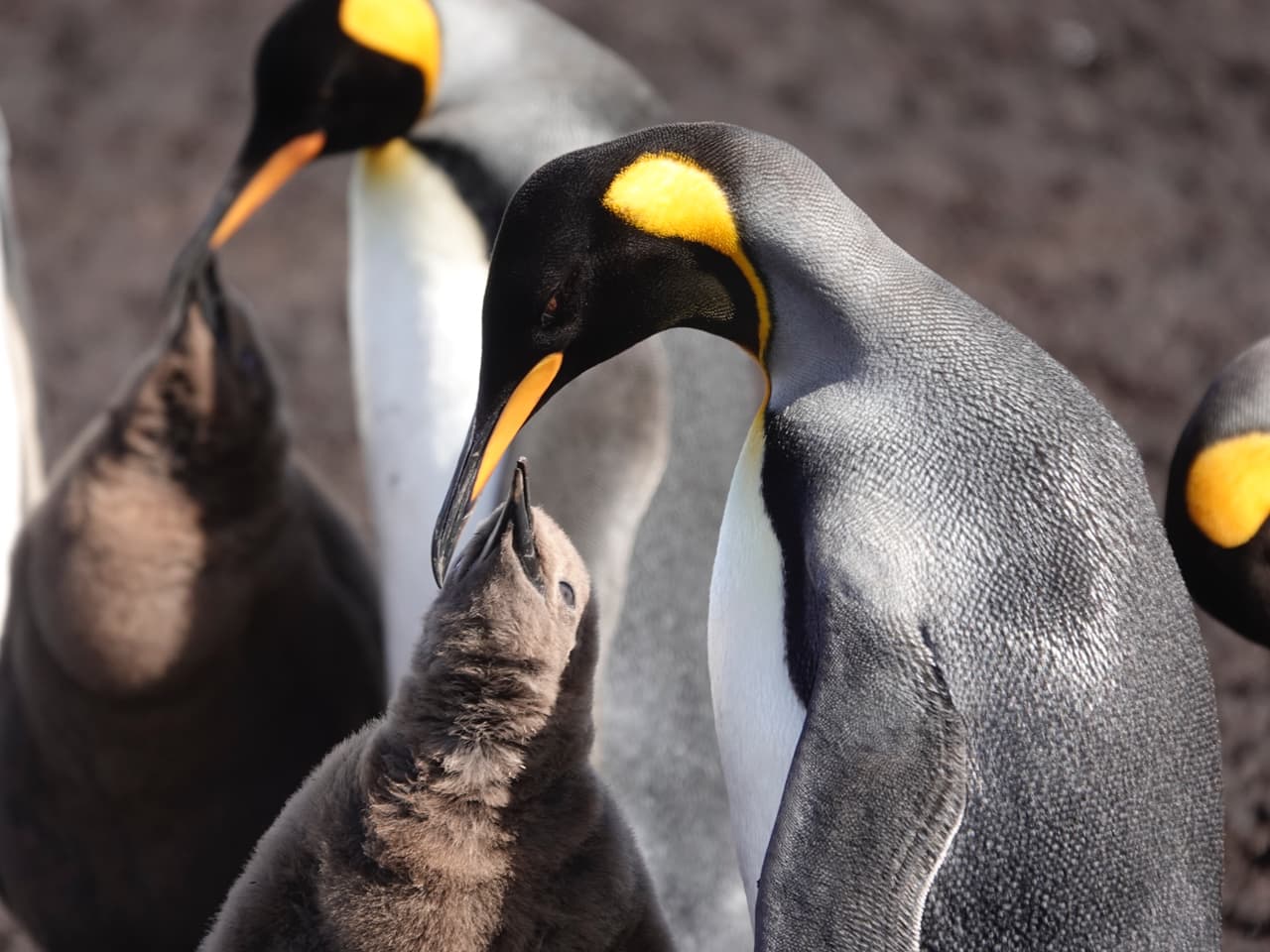
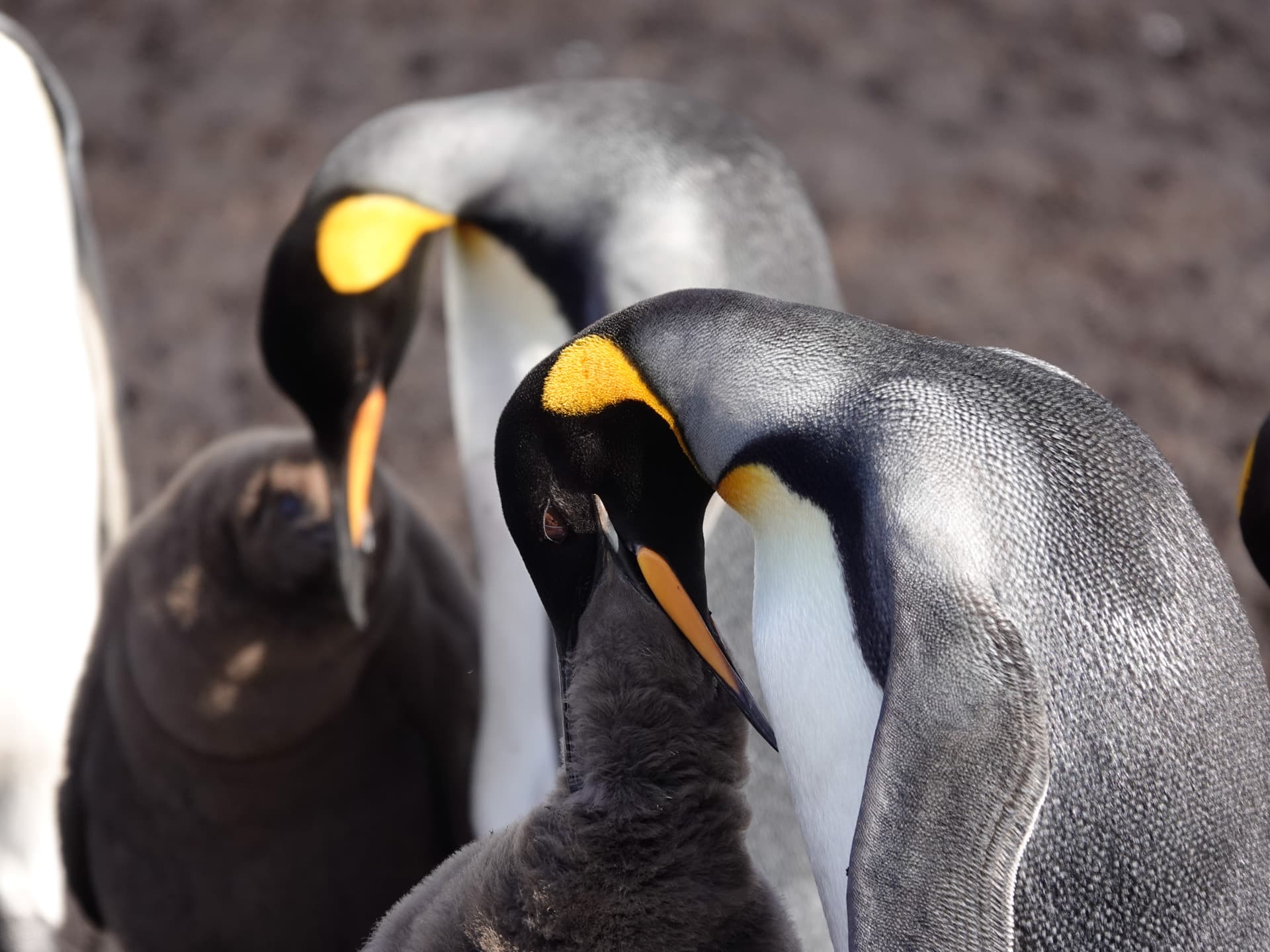
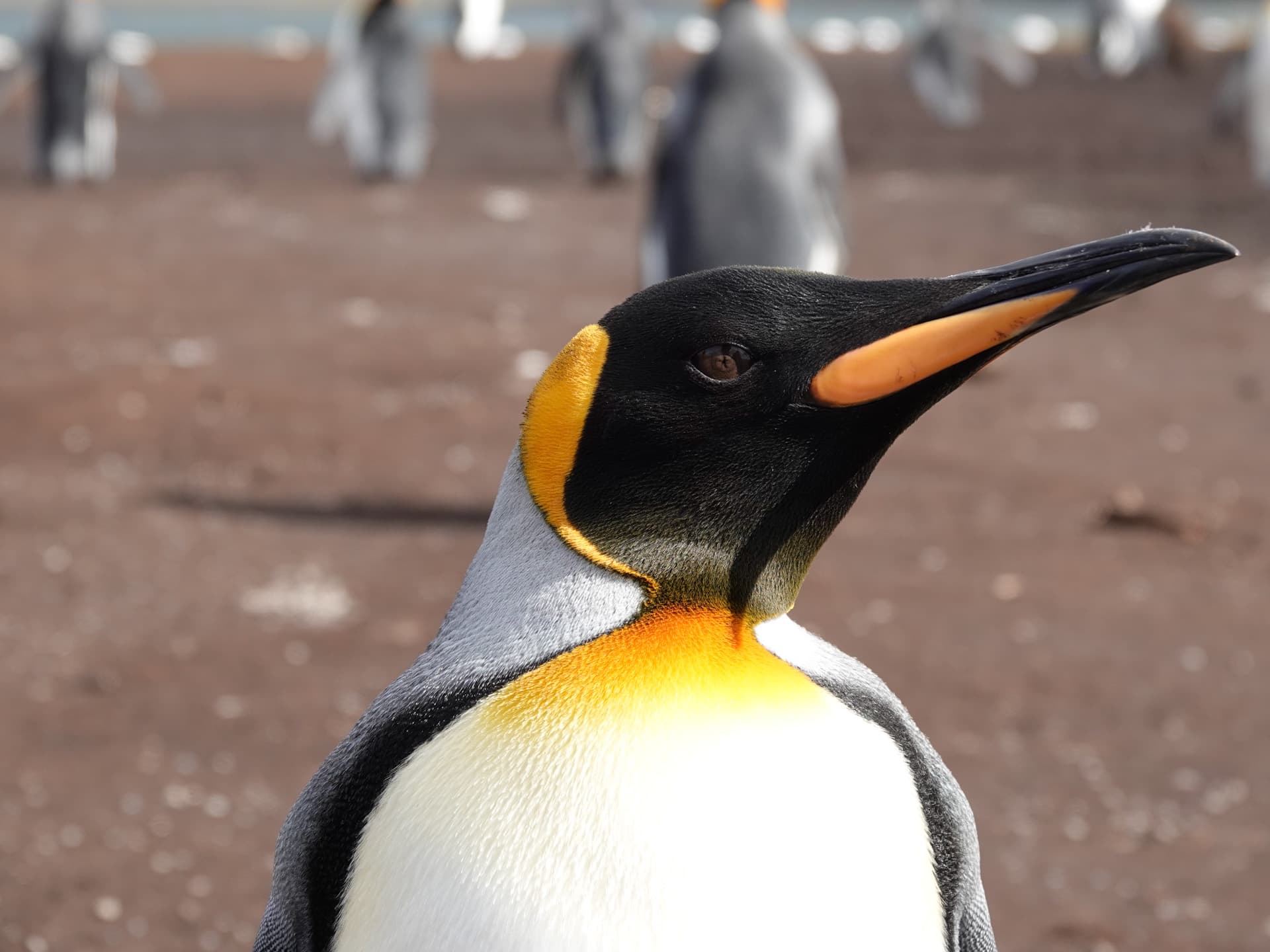
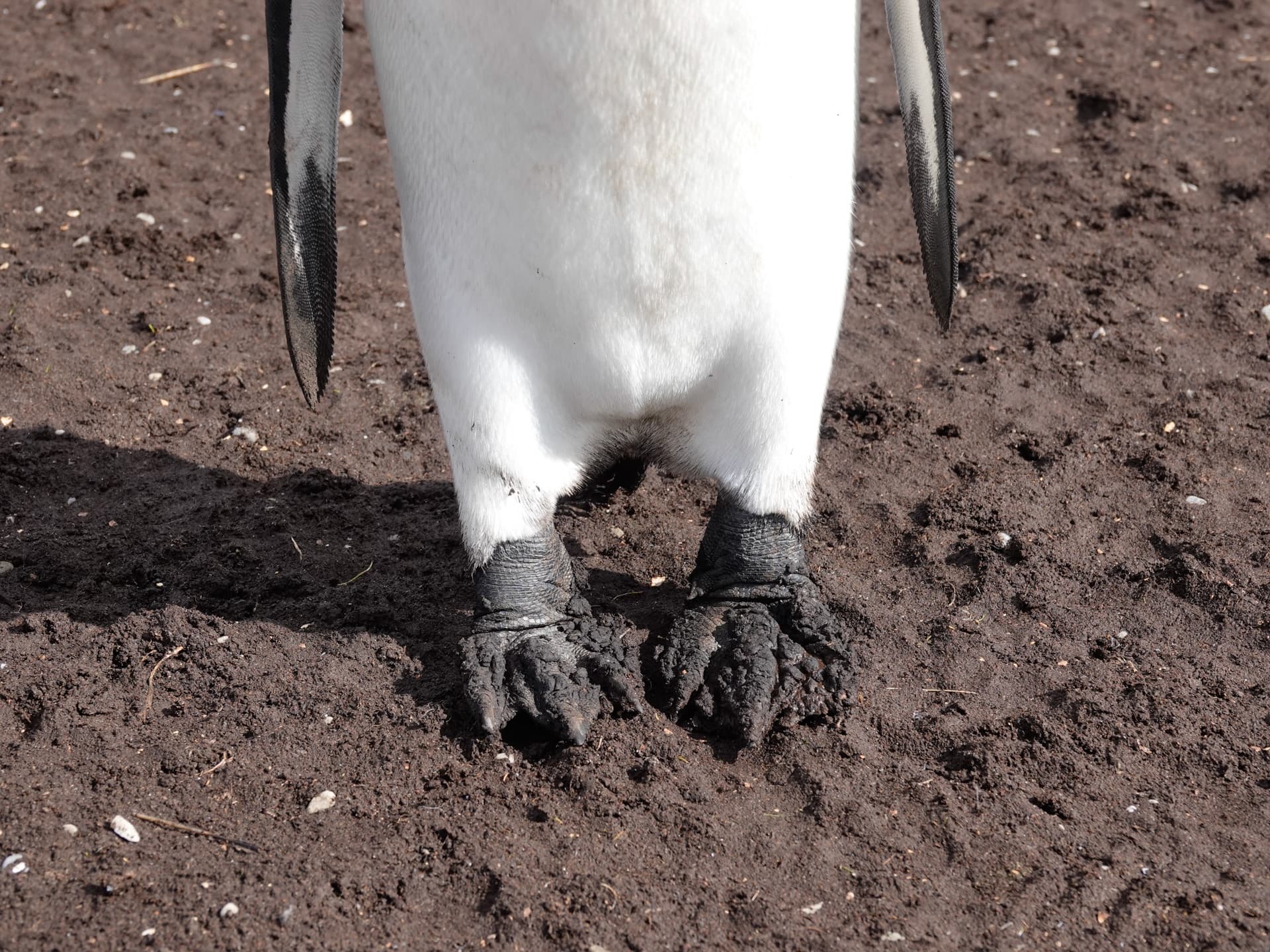
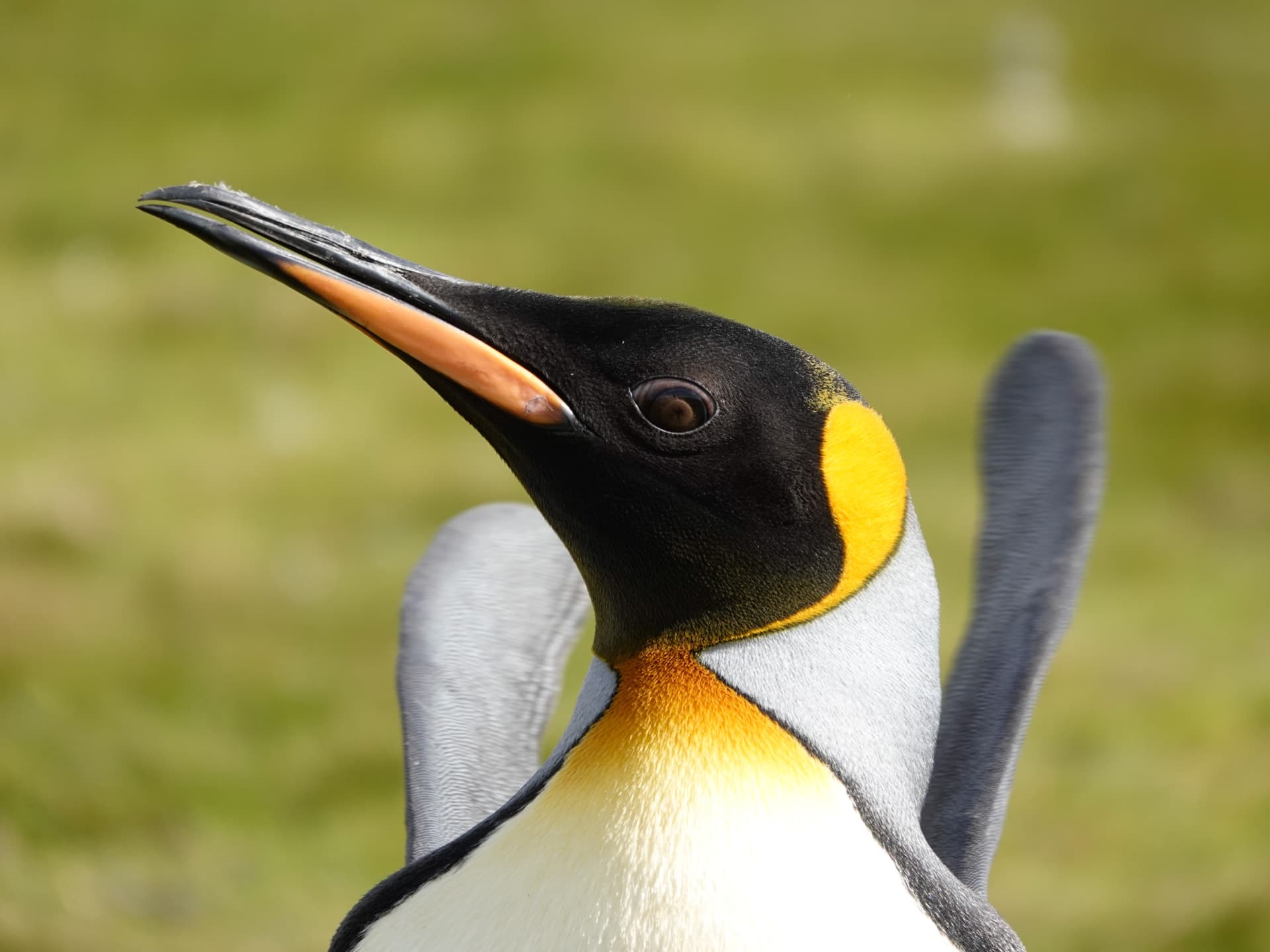
And what a background noise! A polyphonic call from thousands of throats. Everyone has their own voice, they recognise and find each other among thousands. You can watch the hustle and bustle for hours. We also discover some very small chicks that hatched a few days ago. Occasionally, an egg is even carefully balanced on its feet. Much too late. In both cases, the chicks will probably not survive the approaching winter.
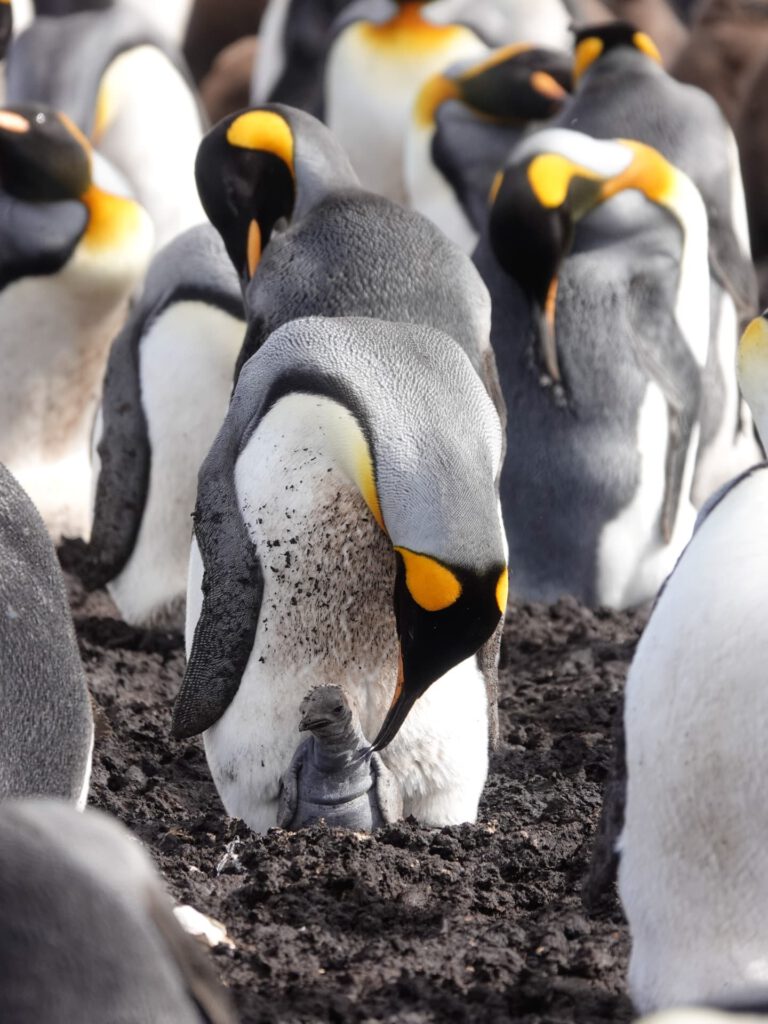
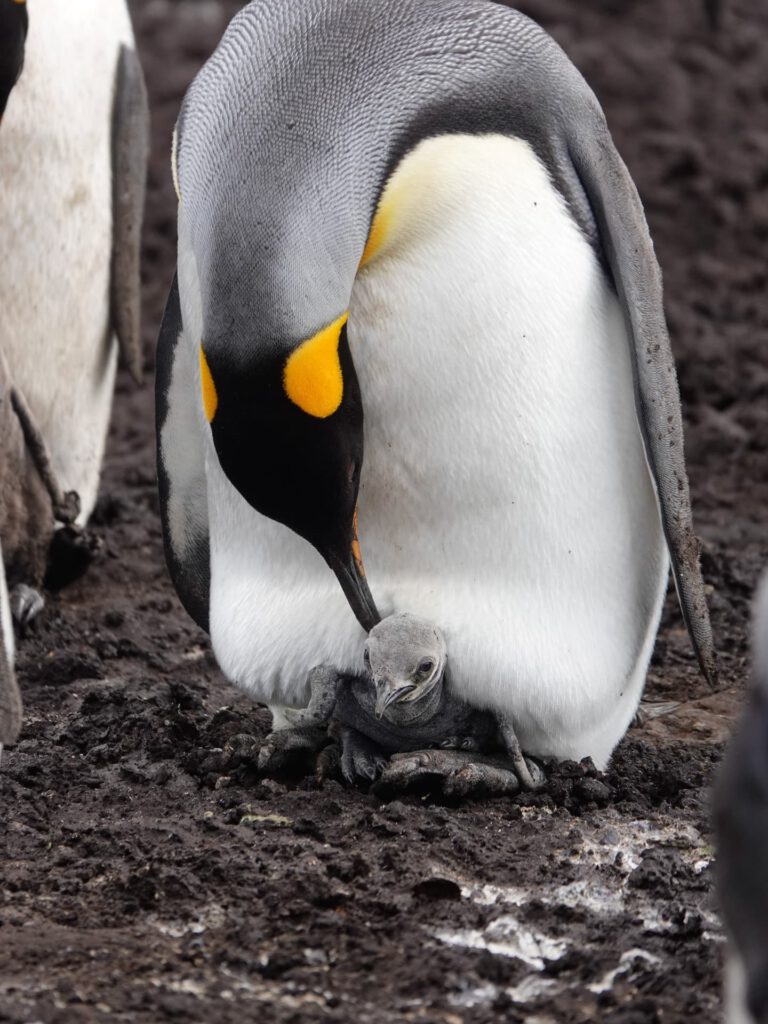
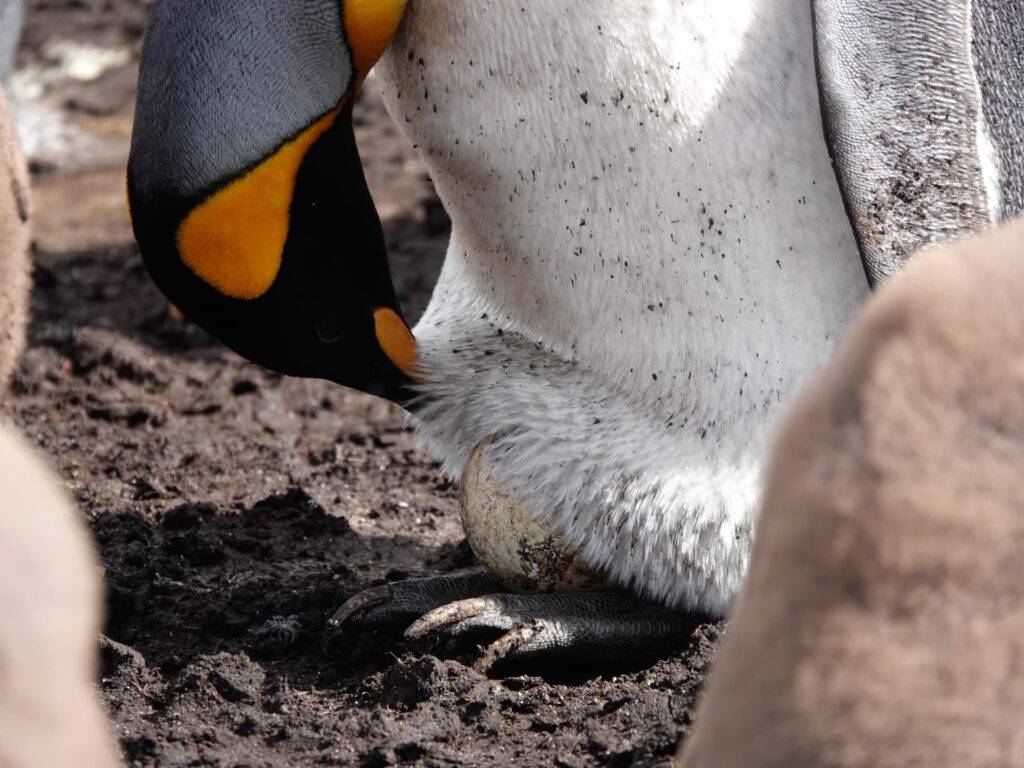
It is an impressive natural spectacle in a very special place, and we are happy to have met the king penguins at the end of our trip after all.
Thank you Artur and Susan!
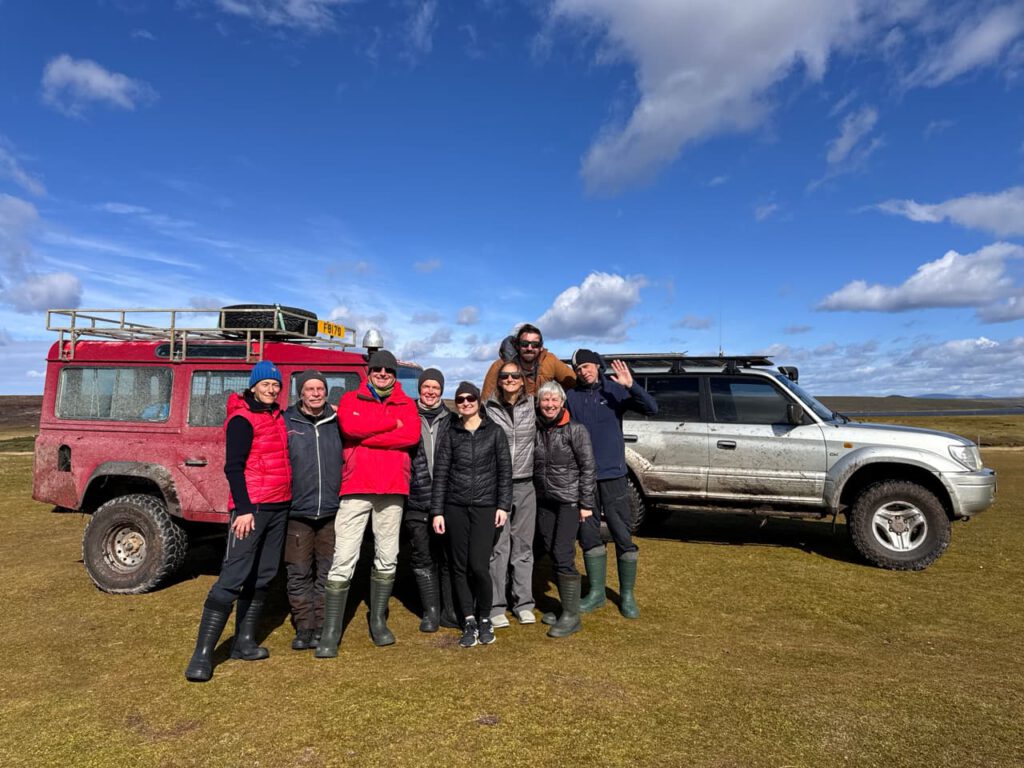
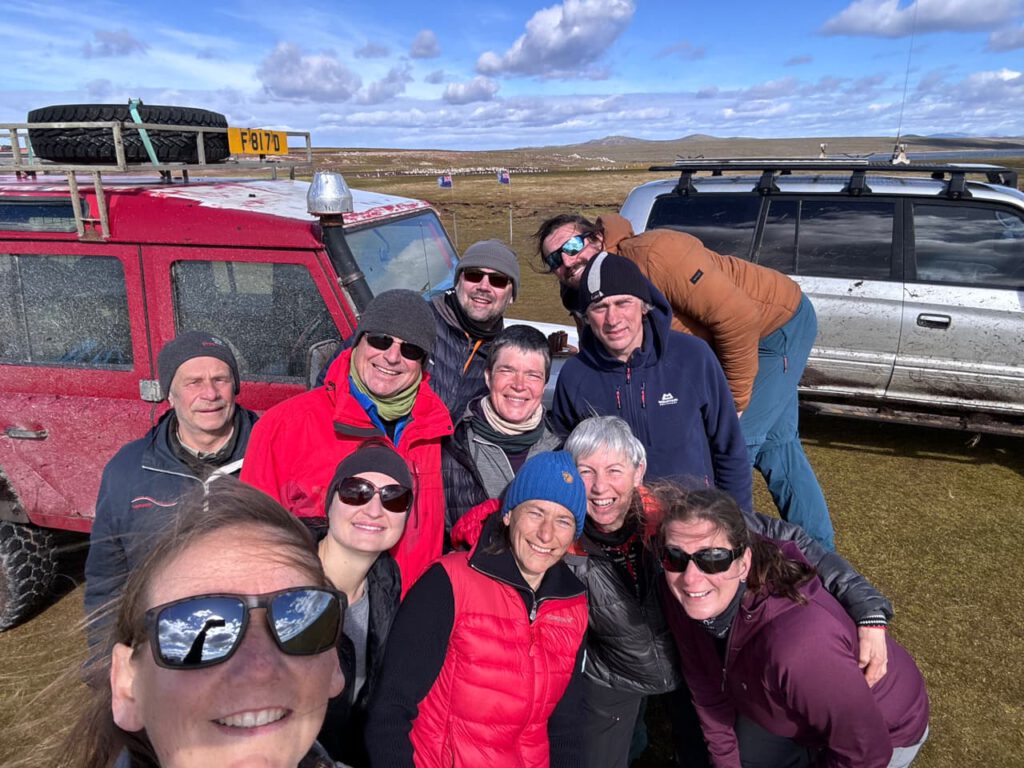
Addendum June 2024:
Discover the treasures of the Falklands with Artur & Lazy Wind
Incidentally, Artur will be offering individual tours to the most beautiful and interesting destinations around Stanley as a local guide under the name Lazy Wind from summer 2024. Guided personally and with lots of insider knowledge, he enthusiastically shares his passion for the breathtaking nature, fascinating wildlife and exciting history of these beautiful islands. An adventure that I can recommend without reservation – penguins and unforgettable experiences guaranteed!

